
Kids in Missions 2025: Seeing Cananéia Through Fresh Eyes
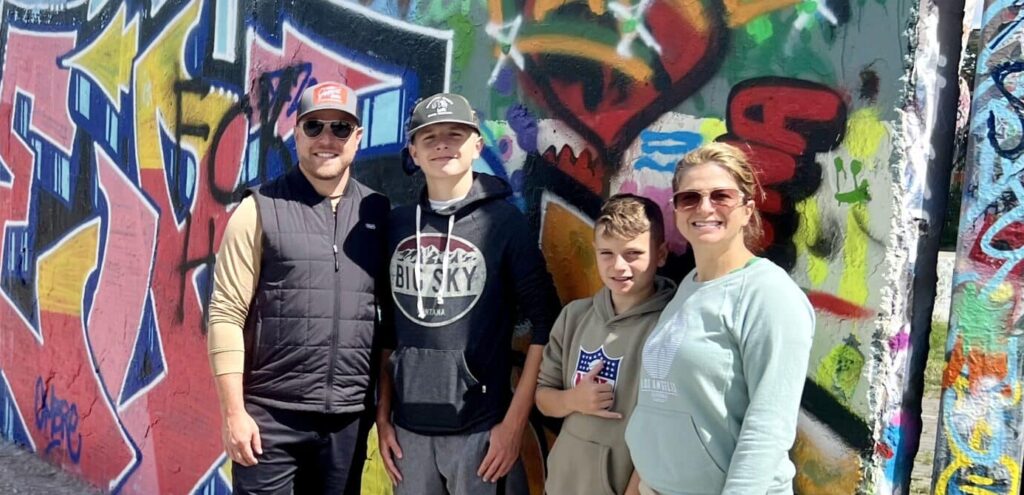
Kids in Missions: Josh & Rocco Geppert
Two weeks ago, we got on a call with Joshua and Rocco Geppert (pictured with their parents, Matt and Jess, above) to learn how their mission trip went. The following interview has been edited for length and clarity.
Hey, Josh and Rocco! Thanks for taking the time to tell us about your recent mission trip to Brazil. Could you tell us when, where and why you went?
Josh: We went to Brazil at the end of July, a week and a half before Friends Around the Table in Sao Paolo. We wanted to take friends we had grown up with in Pittsburgh on their first mission trip. We met up with Biblica de Paz first, which is Leticia’s home church. Then they took us to Cananéia to meet with different tribal groups. The team had met two of the tribes before and built relationship with them, but this time, at the end of our trip, we also met with a new tribal group; we had to take a boat to get to their island.
Our goal was mainly to build relationships, but also to hand out food, blankets, and to offer ministry. Sometimes, the people we met refused it or weren’t comfortable with it — like with the first tribe we met. I think it was good for our friends to see that: to have experiences of cultures where the Christian faith is not in the center, and to see both people who were open to ministry, but also others who are closed off. It was a new experience for them.
I think it was especially helpful for them to meet people who were not open to experiencing ministry. If you spend all your time in the church with pastors and other Christians, the people around you are usually open because that’s the community. Our friends from Pittsburgh had always been in youth group, at church, or serving with a Christian group, so for them, there was usually no tension over Christianity; it was always the center of whatever event they were part of.
We were able to talk through that tension with them. We had always talked about missions with them before, at youth group, or just hanging out, and they had wondered what it was like to go through difficulty as a Christian. Not persecution, exactly, but to be challenged as a Christian. They got to experience a little bit of that on this trip.

What were some of your highlights from the mission trip?
Josh: Before we visited the last tribe, which we knew about because of one of the other tribes, we had a time of prayer and devotion — a time of prayer in the Spirit to see what God was going to do that day. As I prayed, I pictured a person with disabilities who needed help, but didn’t have the right resources; I imagined being able to connect them with Leticia or someone else with medical experience.
When we went out, that ended up happening with two different people. We met one person who had a mental ailment, and another person — the chief’s daughter — who had cerebral palsy in her left arm. Now there is a follow-up medical missions team going in September from Biblica de Paz. That was really cool. I had never prophesied like that before.
Rocco: This felt much different from past missions trips because I was going to a new place, but with old friends. I have never done that before. It was such a different experience from going to Cambodia, for example. It was cool to see all the ways these tribes worked, and how our friends reacted to everything, and the emotion in all of the tribes — how that rubbed off on us. When we first met people in the tribes, they were really happy to see us, so that made us really happy. Whenever they told us about their school, they were excited, so we were excited for them too. When they were happy, it made us happy.
There were hard moments too. It felt devastating to go into one of the three tribes because there was so much sickness everywhere. That’s what it felt like and looked like: devastating. But when we started sharing Jesus, it made everything lighter. When we started giving out blankets and food, the mood of the entire tribe changed. Whenever they looked sad, we tried our best to help them feel as happy as possible.
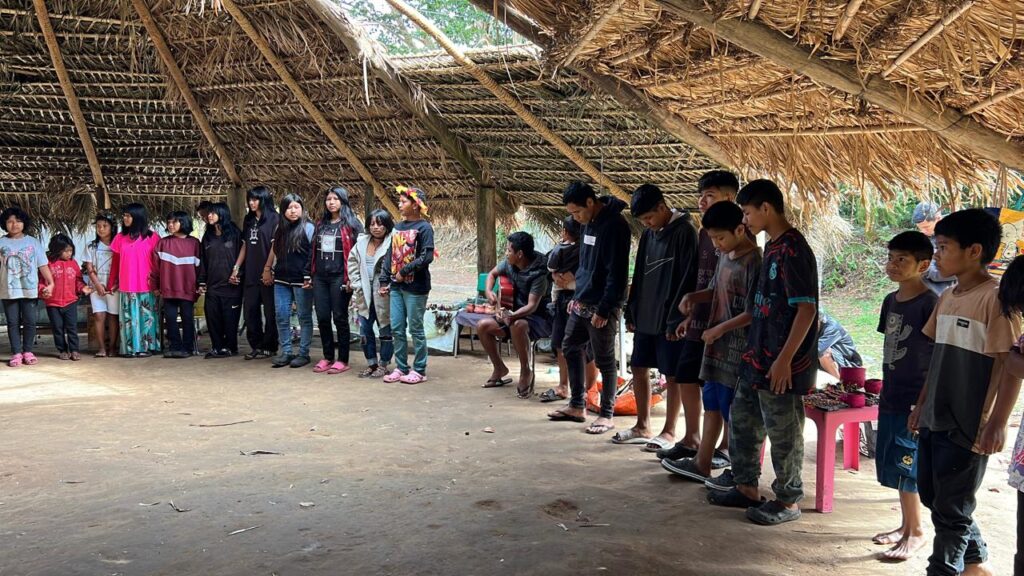
What did you learn on this trip?
Josh: My dad always says, “Relationship comes before ministry.” This trip taught me how important that really is. The two tribes Biblica de Paz had visited before were more open. They knew us before we tried to minister to them; they felt more comfortable with us. The last tribe we went to, which we had never been to before, didn’t know us at all, so it took us around an hour or two of just talking to get to know them before they were open to ministry. I learned the importance of relationship through this trip.
Rocco: I learned that if you share something that is known all around the world, or something that is seen a lot, you can change the atmosphere. Whenever we shared the Gospel with them, the entire mood changed. When we first came in to that third tribe, they were unsure about us. But when we handed out Bibles and openly shared our religion with them, they engaged with us and changed the way they felt around us.
That was true mainly with the smaller kids: after we gave them Bibles and talked about Christianity, they were more playful with us. They wanted to show us what games they liked. They didn’t hide behind their parents or shy away from us.
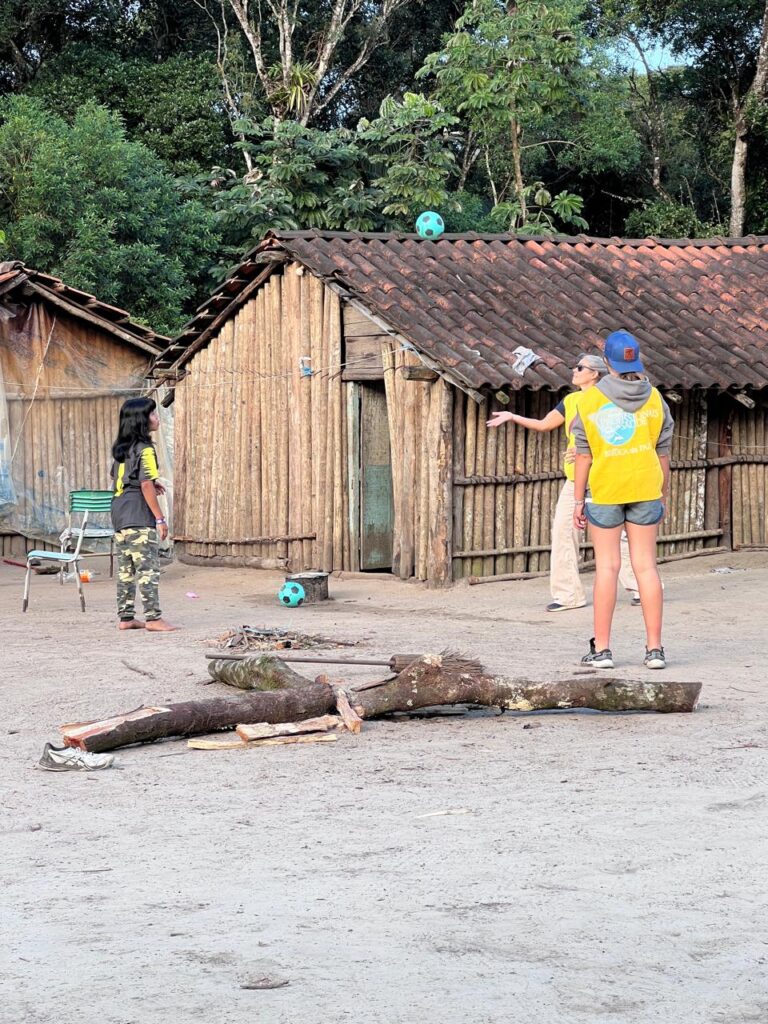
What did you find most challenging?
Josh: Culture shock is a real thing. There were different rules around marriage and treatment of women. But to do ministry and build relationship, you have to get over that. That was a new challenge — one I had never seen before. I think it helped me grow as a missionary, for sure: now I know how to handle it. Seeing my dad and Mr Jamar going straight into the situation — leading by example — made me feel more comfortable.
Also, whenever they would open up and play games, that would ease the tension. We brought little inflatable soccer balls to play keep-it-up, where you’re not allowed to touch it with your hands. A lot of the kids wanted to get on my shoulders and run around, so we did that. With one tribe, we played volleyball, so that was fun.
Rocco: The language barrier. It was hard to communicate. It was hard to understand the way they lived and the spaces they lived in without communicating with them properly. There were translators from Biblica de Paz, but if I wanted to communicate with one of the kids, I would have to call them over to help. For example, if we were trying to teach them a new game, they didn’t always understand it, so then someone would come over and translate.
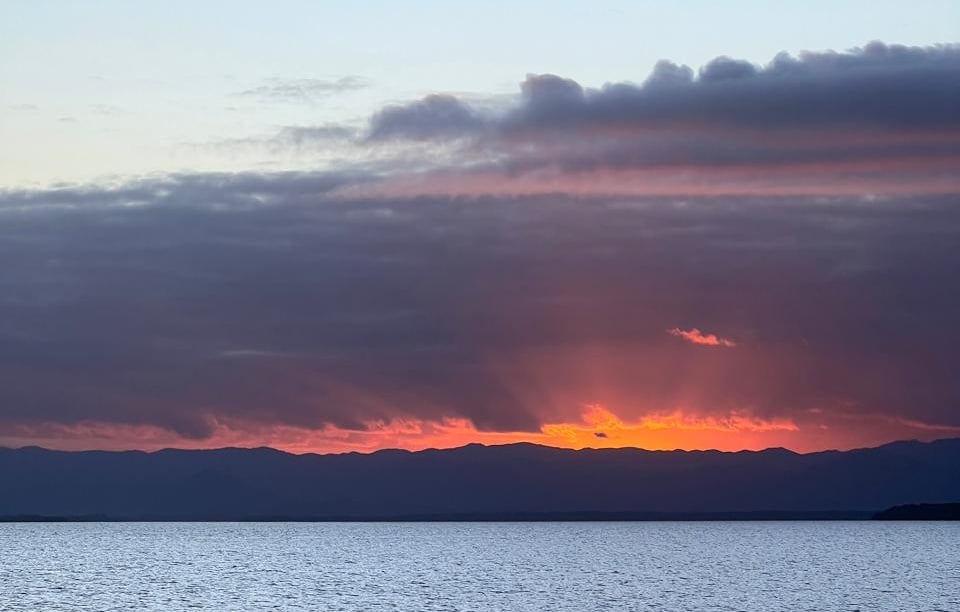
Rocco, we hear you were baptized on the trip! Could you tell us a bit more about that decision, and what it was like for you?
Rocco: Since I was 9, I’ve wanted to go to South America, because I had already been to Asia, Europe, Australia, Africa, and North America with my family. So when we were on this mission trip, at our hotel, my dad wanted to baptize me. I was a little bit skeptical. I don’t know why. I just didn’t feel like I was called to do that at that time.
But whenever it came time, it felt like the puzzle pieces were starting to connect, and it was the right time for me to do that. It was always my dream to reach the six inhabited continents before I was 13. So in that moment, it was a different feeling: it was amazing. I committed to living for Jesus and dying for Jesus, and to loving Him forever.
That was the day we were leaving Cananéia. The whole day felt like nothing for me, even though we had a four-hour bus ride: it went by so fast. I was so happy. It felt like I was a new person, like I was starting a new life. Since then, I feel like I’ve grown my relationship with Jesus, and I’ve been almost like a pastor to my friends. I’ve been telling them all about what I believe, and how I live with what I believe in.
I’ve had lots of conversations with my friends about the trip: I’ve explained it and told them what we did there, how I understand it. It seems like they want to learn more about what we do when we go to these crazy places. Most of my friends are Catholic or Christian, so they get most of what we do. They understand that I was there for Jesus. It’s not as hard to explain it to them as it would be with someone who doesn’t believe.

Now that you’ve been to all six(!) inhabited continents, are you done with mission trips? What are your hopes for the future?
Josh: I don’t plan on stopping international missions any time soon. I really like doing that with my dad, whenever we get the chance. I would also love to bring more people who have never been on mission trips before. This trip was different because, usually, Rocco and I are the newbies in the group. And then I’d like to use what I learned from this trip in the future… even here, in Pennsylvania. A lot of people say you should treat your school like a mission field; I agree. I would love to apply what I learned about relationships in my school ‘mission field’.
Rocco: I don’t think I would ever want to stop doing trips like this. It was such an amazing experience – it’s my highlight of the year! I always try to tell my friends they should tell everyone they know about Jesus, and they should look for people in need to try to help them and spread the Gospel. If I ever see someone sad in my school, I always try to be the first one to go over and help them, and tell them that Jesus loves them.
"At that time Jesus, full of joy through the Holy Spirit, said, “I praise you, Father, Lord of heaven and earth, because you have hidden these things from the wise and learned, and revealed them to little children. Yes, Father, for this is what you were pleased to do." Luke 10:21
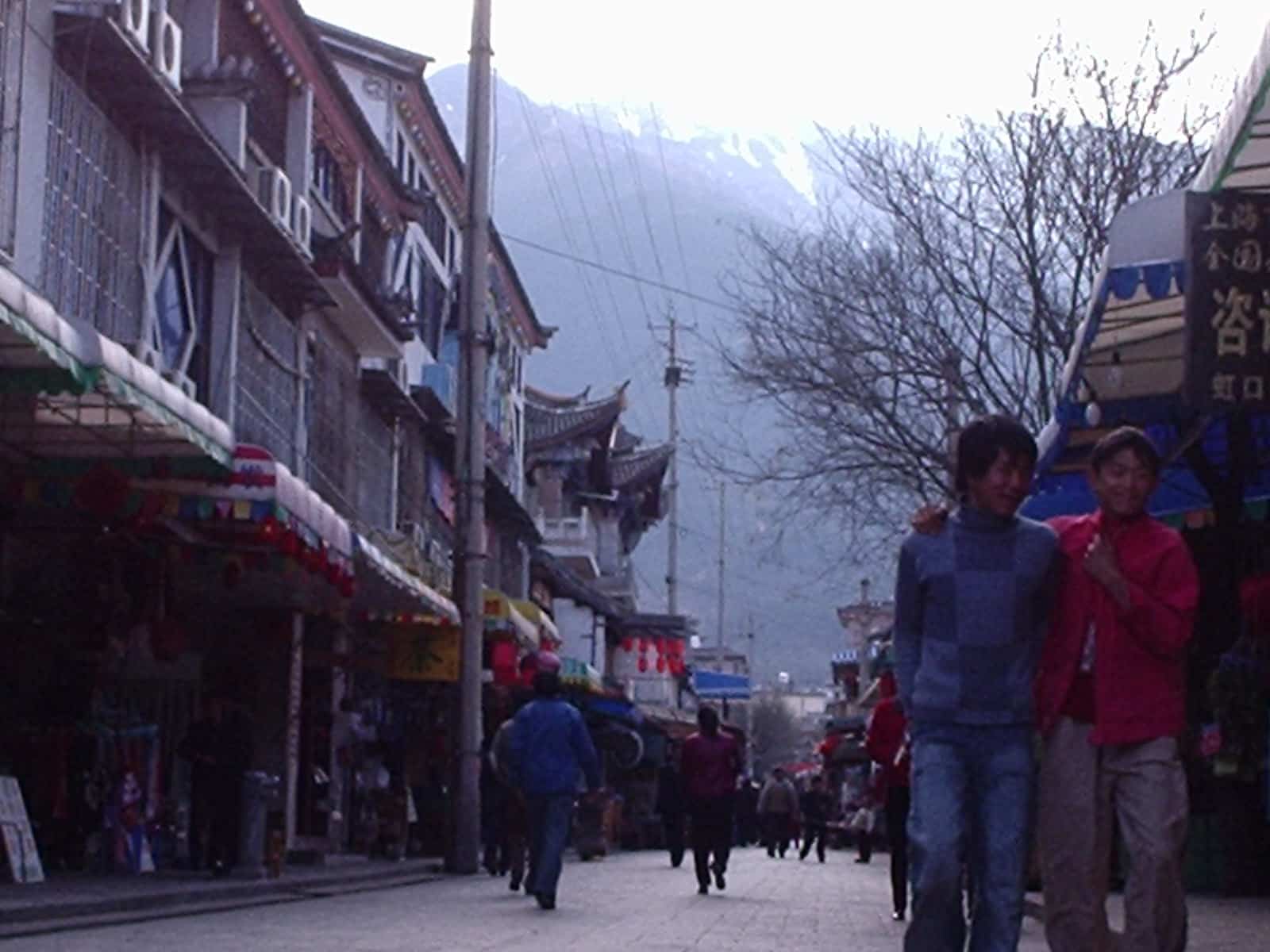
A Guide to Apostolic Prayer Walking: 7 Foundations for Kingdom Impact
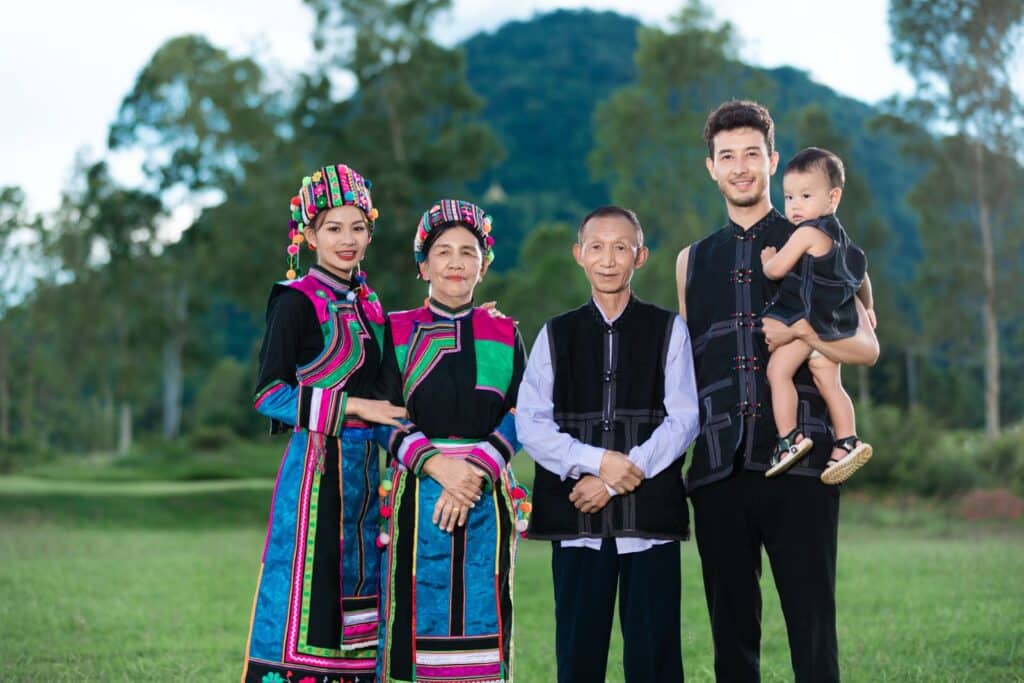
by Jared Lenhart
Table of Contents
My family and the ministry we serve, Frontier Harvest Ministries (FHM), have been prayer walking for decades. Since we’ve started, we’ve seen thousands of new believers discipled, churches planted, and people groups reached.
Right now, FHM has partnered with SEAPC on a new apostolic prayer walking initiative: The Quest. The goal of The Quest is to send teams on the ground in Asia to 72 different ethnic groups within Yunnan Province. In all, we are supporting two teams of three people to head out on rotation every month.
Every month, these teams aim to visit six new tribes; for the first two quarters of 2025, they’ve been averaging about eight new tribes per month. According to Joshua Project, all of these tribes are either classified as ‘unreached’ or ‘unengaged’ people groups. The basic strategy is simple: go into a village and prayer walk. That’s always the first step: getting boots on the ground. But is there more to it than that?
Download SEAPC's Free Prayer Walking Guide
1. Developing an Apostolic Mindset (FHM’s Prayer Walking Origins)
The first thing I want to emphasize in this guide is that just going and prayer walking is apostolic (‘apostle’ means ‘sent one’). You might not be an official ‘apostle’, but you can have an ‘apostolic mindset’ by going, sending people, having a heart for missions and unreached people groups, and planting churches where no church has been planted yet.
Applying that mindset is simple: back in the day, our family would just pull up in a Jeep and prayer walk the village until somebody saw us and invited us into their home. We would share the Gospel, sometimes through The Jesus Film, and then my dad would give them an opportunity to come home with us: “Do you like the message you just heard? Why don’t you come back to the city with us so we can start discipling you?”
This is how we were able to form local core teams – going to the villages, bringing people out to equip them, then sending them back so they can multiply it themselves in those same villages. Our guys now have the same mindset and Spirit: they carry Jesus’ identity so they can continue whether or not we are there. We still work as a team through the internet, but they’re the ones physically there.
They are proof that prayer walking still works today, that Luke 10 still speaks today. The same Holy Spirit is leading them. Our guys have prayer walked a lot of places this year, and they’ve found six ‘families of peace’ so far. We are no longer there, and the guys now have a van instead of a Jeep, but people in China are receptive: they still welcome outsiders into their homes, fulfilling the scripture.
Prayer walking principles are for everyone, everywhere; some things change, but the Great Commission stays the same. The way Jesus did things in Luke 10 is the same. The Holy Spirit is still equipping us today. We need to follow His instructions to grow the work in unreached places, wherever those may be, so that the local people can take hold of it and share with their neighbors — like we have seen our Han Chinese brothers and sisters now doing among the ethnic minorities in China.
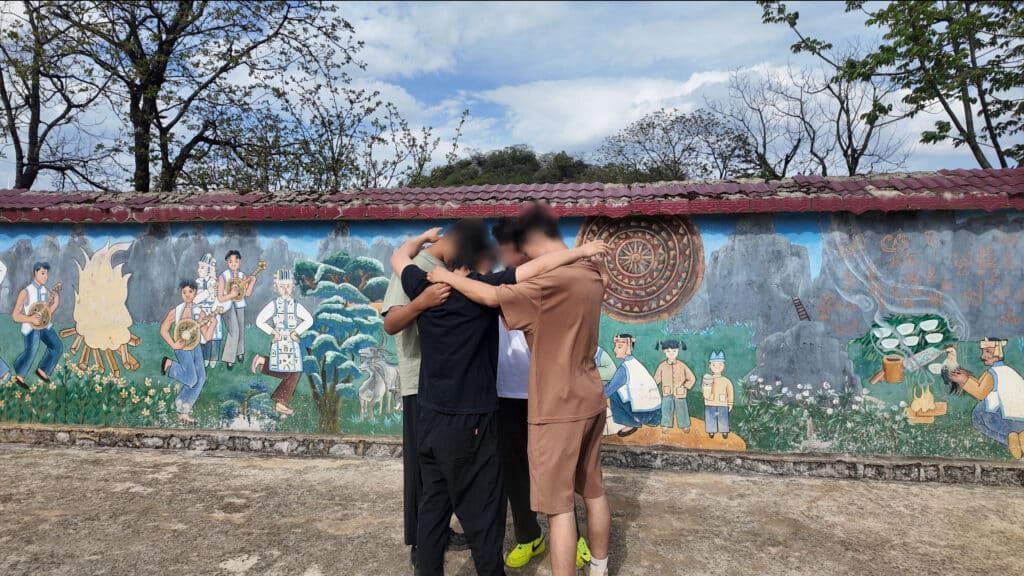
2. Knowing Your Why (What Does ‘Unreached’ Even Mean?)
Before I say more, I think it’s really important for people to understand what ‘unreached’ means. I don’t want to downplay the fact that people in America need Jesus — that there are people in our communities who have not yet heard the Gospel. They just aren’t ‘unreached’ according to the technical definition.
Joshua Project defines ‘unreached’ as a people group where evangelicals make up less than 2% of the population, and less than 5% adherent to any form of Christianity. That’s why ‘unreached’ does not refer to someone in America who does not know about Jesus. Our ‘people group’ is considered ‘reached’, even if everyone still needs Jesus.
The ‘unreached’ parts of the world are less than 2%, or even 1% ‘reached’. In fact, some places are less than 0.01% ‘reached’. These people groups have almost no opportunity to hear about Jesus: no established church, and nobody going to them. In America, you can hear about Jesus on the radio, on TV, on YouTube; there are churches on every block (of course, the other question in America is whether our churches are doing their job: are we evangelizing?).
Sometimes, when I talk about ‘unreached people groups’, people push back: “Well, my neighbor’s unreached.” No, they’re unchurched, unevangelized, or they’ve flat out rejected the Gospel. A lot of people have been hurt by the church. The point is, America is statistically 70% evangelized — which is way beyond the definition of ‘unreached’.
Even if a people group is over 10% evangelized, it’s considered a ‘reached’ nation, because it can now reach other members of that people group from the inside out. Unreached countries can’t do that, which is why we need to go to them. If you’re not going, you should be sending. If you’re not sending people, send resources and pray for people. Some churches don’t have people or resources to send, but they can partner in prayer, even while continuing their local work.
Once you can grasp this definition, you can understand what missions looks like today. We are blessed in that we no longer have to get in a boat, put all our things in a coffin, and then live in another country until we die. We can go back and forth. We can vary our ministry. It doesn’t just have to be one thing.
Jesus said we would be His witnesses, “First in Jerusalem, then in Judea and Samaria, and then to the ends of the earth.” (Acts 1:8). In other words, local, regional, and international. Knowing this perspective and knowing what terms like ‘unreached’ and ‘unengaged’ mean will help us to keep fulfilling the Great Commission.
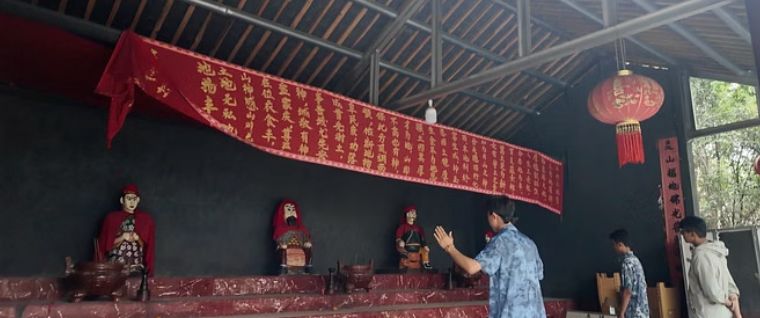
3. Combining the Apostolic with the Prophetic
The apostolic and the prophetic go hand in hand. When you see them working together, it pushes the work forward, and you see amazing Kingdom results. First, the prophetic directs and encourages you to go. Then, through the apostolic — being obedient to Jesus’ call to go — you get to see lasting fruit on the ground. The best story I know that demonstrates this is of the house church network we helped to plant in Inner Mongolia.
In 2008, when we were still living in China, Samuel joined our team. Samuel had connections in Inner Mongolia, which is in the northern part of China. He visited the region often and sent teams to prayer walk. Those teams would even go and live in people’s homes for months at a time to help herd sheep, harvest grass for feed during the winter, and deepen relationships.
One of those relationships was with a brother called Na Shun, whose Mongolian name is Wuratuaha. He and Samuel are close. Typically, Mongolians and Han Chinese don’t work well together, but somehow Na Shun and Samuel have broken that cultural barrier. They’ve been working together since Samuel joined FHM.
Fast forward to 2012: I was in High School in America, but our family was still traveling into and around China regularly. At that time, Samuel suggested we travel to Inner Mongolia to run a training. My dad loved the idea because he wanted to start an FHM center in Hohhot, the provincial capital. There was just one problem: in 2009, college students in Hohhot had started a huge riot against the government, and the government had responded by closing all of Inner Mongolia to foreigners – which meant that the trip we wanted to take simply was not possible.
One Sunday during that time, we visited Covenant Church of Pittsburgh. After the main gathering, they had a little mission meeting. We were going to talk about the trip we were hoping to take to Inner Mongolia. Before we had even said anything, one of the sisters in this church stood up and started speaking. I think she was Austrian.
She said, “I see you in a dry and desert land. I see you in Inner Mongolia.” (Inner Mongolia is part of the Gobi Desert.) “I see you in a vast land, standing amongst rocks. I see the wind blowing, and as it blows, I see the rocks turning over, and snakes coming out from underneath them, towards you. I see a lot of snakes, but do not fear them: the snakes are the souls of the Mongolian people — people the Lord is going to give you.”
We were like, “How does she know we’re going to Inner Mongolia?” It was totally the Holy Spirit. At the time she gave us the prophecy, the province was still closed, but just one week later, it opened up to foreigners again. Two months after that, we had our tickets and we were there, prayer walking in the grasslands, living in yurts, and sharing our strategy with brother Na Shun (going into villages, prayer walking, and making friends).
We trained people in the Lord from 2013 all the way to 2018 through annual Harvest Fests. We would gather workers and drive from Chengdu to Inner Mongolia — the journey took like four days by car. Sometimes we would fly. Now we get to see those people — people we laid hands on, prayed for, cried over, hugged, loved on, and baptized in Inner Mongolian rivers — doing the work themselves, planting churches and producing long-lasting fruit. Whole families are being saved.
One year, one of the guys coming to the Harvest Fest was on a train. He had a dream that a white, foreign dude he had never met before pulled him out of a river. When he arrived, he saw Eric, my roommate, and told him, “I saw you in my dream.” Sure enough, Eric baptized him. This guy was a Buddhist before. His daughter had brought him to the training. The year before, we had told the previous Harvest Fest participants: “Next time, bring someone who isn’t a Christian.” She brought her dad.
I just got off the phone with Na Shun a couple of months ago. He told me how they have now planted a house church in all nine districts in Inner Mongolia, with over 500 believers across the FHM network. All of that through prayer walking, connecting with locals on the ground, equipping them with the Word and training, and sending them with resources for further Kingdom work. And of course, we now have a Bible school and training center in Hohhot, which we built in a sheep herding building, where they also sell wool. That’s what happens when the prophetic and apostolic work together.
4. Establishing a Strategic Sending Base
One of the reasons we care so much about establishing training centers in major population centers (like the one in Hohhot), is their strategic importance: they open unexpected doors for the Gospel. For example, when our teams from Kunming go into villages throughout Yunnan province, they tell people about their business selling honey in the capital. On a recent trip to the villages, they met someone who produces honey, so they decided to partner with him: they transport his honey to Kunming, where they sell it. The profits help to support this guy’s family — and he is also now a ‘person of peace’ in that village.
There are other open doors. Hospitals in smaller towns aren’t as sophisticated as those in Kunming. They don’t have the right equipment or staff, especially in more severe or complicated cases. Most villagers don’t know anyone in the big city they can ask for help — but once they meet our guys, that changes. Our team is happy to be a local point of contact and to offer a place to stay (in the training center). There, they can do what they need to — like give them rides to the hospital — but they can also pray together and learn from one another in a safe environment.
We met another villager whose son is currently imprisoned in Kunming; he was caught working in a ‘scam center’ in Myanmar, so they extradited him to China and sentenced him to six years. This villager now visits Kunming a few times a year to see his son. Our guys help him get to those visits, and they even visit his son themselves when he’s not there. Thanks to the training center in Kunming, his dad now has friends who can be gap-bridgers in their situation, and who can offer a place to stay.

5. Spending Quality Time: Imparting Jesus’ DNA
Another priority for us is establishing consistent rhythms of gathering in — meeting together, and spending quality time together — so that we can eventually send people out. Like I mentioned for Inner Mongolia, we do this through something called ‘Harvest Fests’ where we gather anywhere from 10 to 200 leaders. During these gatherings, we explain what terms like ‘unreached’ and ‘unengaged’ mean, and we help them to see the reality of the Great Commission.
Of course, we spend time with our teams outside of these bigger meetings, too. Jesus had three-and-a-half years with the twelve disciples. He came alongside them, showed them what to do, and empowered them with the Holy Spirit. As missionaries, we have the same job: to get on the ground, form a core team, train up leaders, and get Jesus’ DNA into them so they can multiply. It takes a lot of training, a lot of time being together, and going out on mission together for them to get it. It’s a process.
It’s all about doing life together. If I’m living in the grasslands of Mongolia in a tent, you’re living in a tent with me. If I’m in a 5-star hotel, you’re going to be with me there, too. We roll as a team, and we do things as a team. I’m not going to stay in some fancy hotel while our brothers are in a 1-star hotel, so I can save a little bit of money. We’ve got to be together to have that camaraderie.
Most of these guys don’t grow up with that. Most of them don’t have a mom or dad who told them they loved them. Most don’t grow up in an apostolic church environment where they can be equipped and go as part of a team — so they have to get used to that dynamic first, before they are sent. Over time, they can develop a humble spirit, a willingness to learn, and a desire to go, so that one day, they will be ready to teach others to do the same. That’s how you multiply.
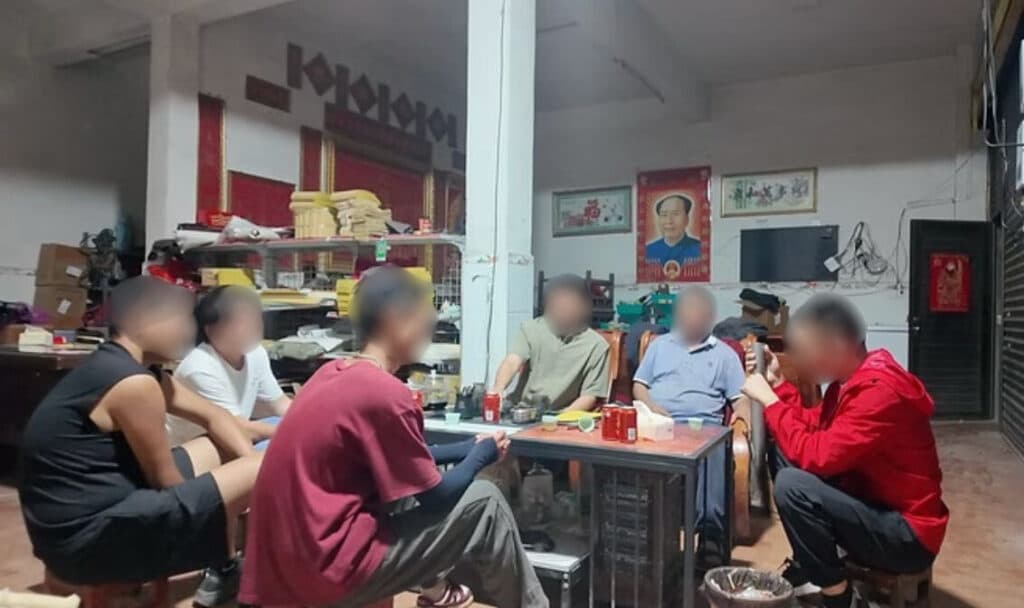
6. Finding the Person of Peace: It’s Not Always Straightforward
Getting our guys confident of their identity in Jesus grounds them when things get tough. Back in March, they went to a village in Tunjie Township, Dali Prefecture, in northwest Yunnan. The Niesu People live there. Our team went in, started prayer walking, and felt uneasy all day. People just weren’t open. In a lot of other places, locals would initiate conversation or invite our guys to help work in the fields. Not so here. Every time they tried chatting, they were turned away. People even closed their windows while they walked by.
They tried introducing themselves, “Hey, we’re businesspeople from Kunming, and we’re trying to find local honey or other produce we can sell in the city. We’re here to tour around and check this place out.” But nobody responded. One guy even opened his door and told them, “I don’t want to talk to you. Get out of here.” And then the village elder came up to them and started interrogating them, “Why are you here? Who sent you? What are you doing?” That really spooked them, so they got in their van and skedaddled.
As Jesus says in Matthew 9 and Luke 10, “If you’re not welcomed in one village, wipe the dust off your feet and go to the next village.” So that’s what they did. It’s not worth pressing in those situations. In China, if you get caught preaching the Gospel, or if they know you are connected to foreigners, you can go to jail or be put under close surveillance.
Anyway, our team started driving and praying in the Spirit, getting their ‘spiritual high’ on. As tongues flowed out, they asked God to open doors for them — and then they made a ‘wrong turn’. They got lost in the middle of nowhere, in the foothills of the Himalayan mountains. It was starting to get dark, it was a dirt road, and the van literally ground to a halt. Doubt set in: “God, why are we even out here?”
All of a sudden, a sheepherder appeared on the road. At first, they were worried he was going to give them some ‘ma-fan’ (‘trouble’) like the villagers in the town they had just come from, but he came over and offered to help. In fact, he invited them all back to his house, and they stayed in his home. Before they even arrived, there was a huge meal waiting — enough for the five guys in that team. They had found the ‘person of peace’ Jesus promised.
When you prayer walk, you might encounter obstacles designed to distract you from the main mission — but sometimes, those ‘distractions’ can actually be God leading you where He wants you to go, to the people He wants you to meet: “All things work out for the good of those who love Him and are called according to His purpose.”
In the 2 months since this article was written, our teams have connected with 15 further unengaged people groups, making friends with 8 new ‘families of peace’. The Quest Update (August 2025)
7. Standing in the Gap for More Open Doors
God says in Ezekiel 22:30 that “I looked for someone among them who would build up the wall and stand before me in the gap on behalf of the land so I would not have to destroy it, but I found no one.” I believe He is still looking for people to ‘stand in the gap’. If you’re willing to go, God will send you and work with you.
When you go, it’s important to remember: you might not ‘feel anything’ in the moment, but simply showing up, being obedient, and praying according to His will initiates something in the spiritual realm. If you are a child of the Most High, you have a brother, Jesus, who made a way and stood in the gap for you, so that you can now stand in the gap for a lost world.
Back in 2014, we planned a trip to Sichuan Province, to a town called Muli, which borders Tibet. It’s built into the side of a mountain, on one side of a huge valley. If there were a landslide, the whole place could collapse. It’s pretty remote. When we told our local team we wanted to prayer walk there, they didn’t get it: “What’s in Muli?” We reminded them: “Souls that need saving!”
Back then, my dad’s uncle, Pastor Ray Patterson, was still alive. We invited him and some other guys, like Dan Ecker and Tod Rosenwalk, to join our local team on the trip. We were just going to prayer walk — to stand in the gap for the people. Muli was also important to us because it was one of the last frontiers: once you were established there, you could send workers into Tibet, and even further.
It was a long journey. We spent 24 hours in trains and cars to get there — after a 24-hour plane ride. When we arrived, I’ll admit I didn’t feel like very much was happening. The view was pretty spectacular (we prayed for the city from the other side of the valley, with a 3,000-foot drop in between us), but there was no ‘whirlwind’ of the Holy Spirit, no intense emotions, no physical proof of anything happening. We prayed, we walked, and we went home.
On the train back, Pastor Ray fell asleep. Several hours in, he woke up, super excited, and shook my dad, “Chuckie! Chuckie! Wake up! I just had a dream! I saw a red dragon flying over the valley, and it turned pale white, fell from the sky, and died. Then the dream ended and I woke up.” This was all the confirmation we needed, and it was a big change for Pastor Ray, given his skepticism before the trip, when he’d pressed my dad, “Why in the world would we go there? What purpose could it possibly serve?”
Pastor Ray’s newfound dream perspective proved trustworthy. A couple of months later, my dad equipped the local guys on the ground and sent them to Muli. A couple of families were saved on that first trip. Since then, one local family donated their whole apple orchard to host an FHM training and sending center. We partner with them to this day — and it all started from going and prayer walking.
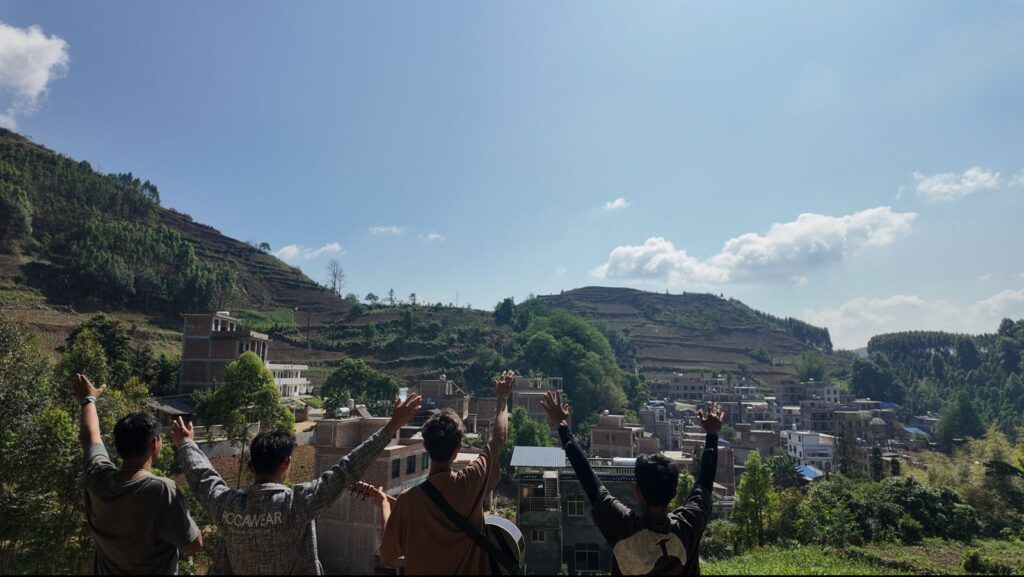
“Go Into All The Earth…”
In Matthew 24, Jesus says that the Gospel will be preached in every “ethnos”, and then the end will come. There are so many “ethnoses” in China, Vietnam, Mongolia — all across the 10/40 Window — that have nobody standing in the gap for them. We need to send teams in to get boots on the ground and start praying.
We believe that, when we send people in basic obedience to prayer walk, make friends, and persevere until they find the right people of peace, we will see entire people group movements form — movements that can reach their own people. But that won’t happen unless we are apostolic, and we get out of our comfort zone — actually going to these hard-to-reach places.
As our friends and mentors, the Gepperts, like to say, “The harvest is plenty, and the workers are… you.” Will you go? Will you stand in the gap in the earth’s final frontiers? For people who have never heard the name of Jesus? To see the end come? To see Jesus return and establish His Kingdom? He’s ready; are you?
"And this Gospel of the Kingdom will be preached in the whole world as a testimony to all nations, and then the end will come..." Matthew 24:14
Access Our Free Prayer Walking E-Course Download the Prayer Walking Guide

Medical Missions Outreach: Surprising Stories from Oaxaca, Mexico (2025)
Table of Contents
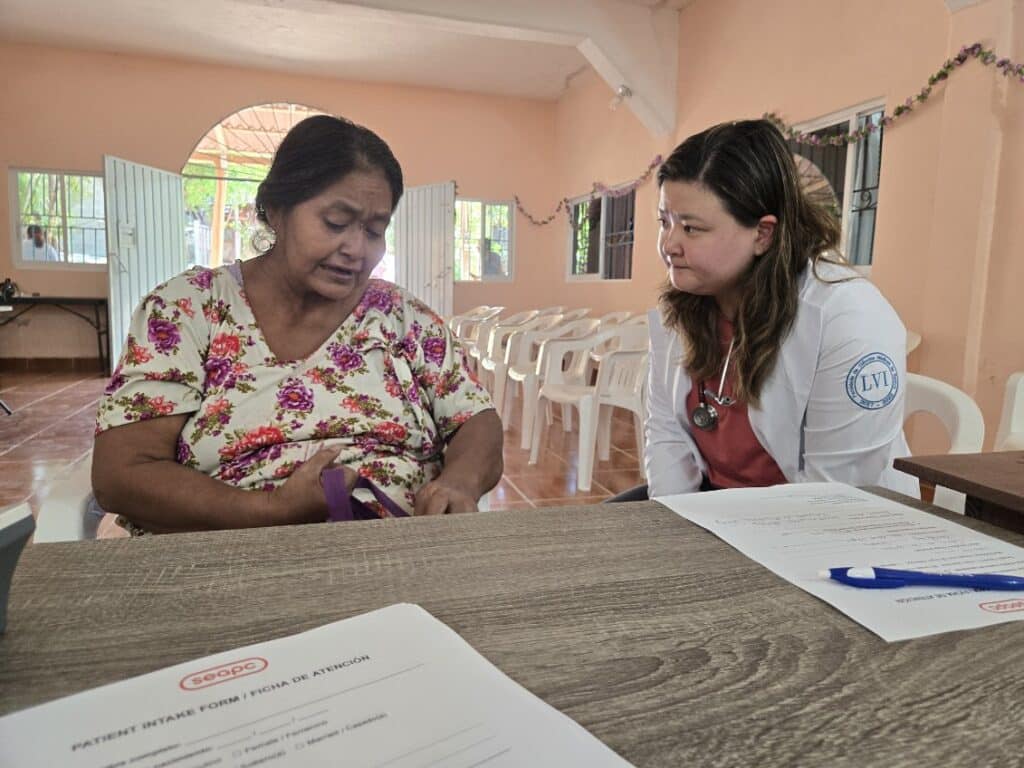
“Pregunta por su hijo. Ask about her son.” I heard these words the moment ‘Maria’ walked into the room. She was visiting our medical missions outreach station for a UTI (which was simple enough to treat with the antibiotics we had brought), but it felt like God had more in store for her than a standard consultation.
As we talked, I kept hearing the same thing: “Pregunta por su hijo.” At the end of my allotted time with Maria, I relented… kind of. I asked, “Do you have any kids?”
“Yes. The oldest, a girl, is 25. My middle son is 21. My youngest girl is a teenager.” She replied with a neutral tone.
OK. So Maria did, in fact, have a son. Now I really had to ask. I explained, “Hey, I’ve been hearing this voice in my head, which I think is God, telling me to ‘ask about your son’ — so I feel like I should ask, ‘How is your son?’”
No sooner had the words left my mouth than she started weeping – and then shared the truth. Her son was not 21; he had been 13 when he died, 8 years ago. At the time, her family had just started a small pizza restaurant with home delivery. Their entire family was excited, as they were coming out of a financial crisis, and this was a great opportunity to recover what they had lost. Her son was eager to help.
At his age, he couldn’t drive, but he could hold the pizza delivery box while someone else took the wheel. On one of the delivery trips, the motorbike driver crashed, and her son fell face-first into the street. His head crashed into the sidewalk, and he was rushed to the hospital, where he was declared brain dead. They kept him there for some time, praying for a miracle. Eventually, friends — including their pastor — visited to say, “It’s time. Let him go.”
For 8 years, Maria carried this ‘double guilt’: guilt that she had let him go out that day, and guilt over turning off his life support. She was hurt both that God had not healed her son and that she had been the one to pull the plug.
I heard the same voice speak gently, "It's not her fault. She needs to let go of her guilt. My burden is light."
As tears cascaded down her face, I heard the same voice speak gently into my mind: “It’s not her fault. She needs to let go of her guilt. My burden is light.” I offered her these words, and she started to weep even more uncontrollably.
She had a lot to release, but she was willing to pray. I encouraged her to know that God cared deeply for her and that she could talk with the psychologist who was part of our medical missions outreach team. When she stood up, you could see the difference on her face and in her demeanor: she left the room a different person.
The Surprise of Medical Missions Outreach: Why Did You Come?
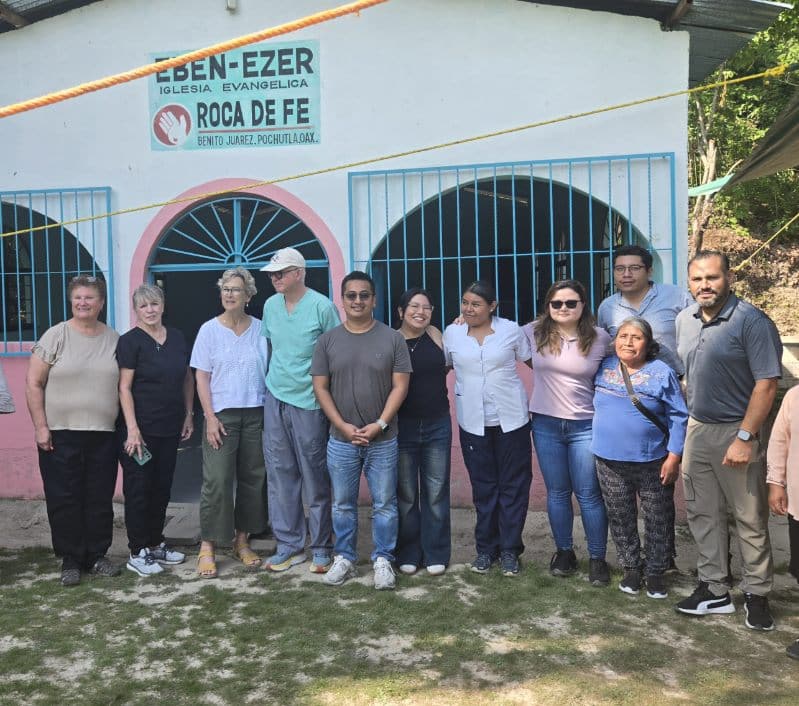
I’ve been helping with medical mission trips since I was a kid, so I’ve experienced a lot on the field. When I was invited onto SEAPC’s residency program, that was where I was asked to focus: healthcare. At the time I joined, I saw this season as a ‘Nehemiah’ work: reconstructing the walls of the medical missions platform. I knew it would take time, with lots of people pulling in the same direction, and lots of regions involved around the world; it was by no means a one-woman job.
When Ps. Melqui and I were planning this 5-day trip to Oaxaca’s coastline region (with 5 coming from his church, Roca de Fe Oaxaca, and another 5 flying in with me from the US), it felt like another ‘brick’ on the foundation, another contribution to the work of the wall. I knew it was important, but I did not necessarily expect God to highlight something entirely new — which He did when ‘José’ came in for help with his diabetes…
José was an older, petite man in his sixties or seventies. As soon as I saw him, I felt a deep sense of sadness. As with Maria, I felt led to share, “Hey, I feel like you might be carrying a lot of sadness. Does that connect with you? Can I pray for you?”
"Hey, I feel like you might be carrying a lot of sadness. Does that connect with you? Can I pray for you?"
Almost exactly like Maria, José broke down crying. He told me that he used to be a pastor and church planter — he had started seven in the region — before falling into sin and leaving the ministry. In the years since, and in this conversation, he realized that he needed to “get back to Dad.” He kept repeating that: “I need to get back to Dad.” He reminded me so much of the Prodigal Son: desperate to return to the Father.
Prayer led to a moment of literal confession: “Dad, I repent. I am so sorry.” Our team lifted him, his wife, and his children before the Father. He received it all with gratitude before going to speak to our psychologist.
Christian Medical Missions: Where does God sow and water?
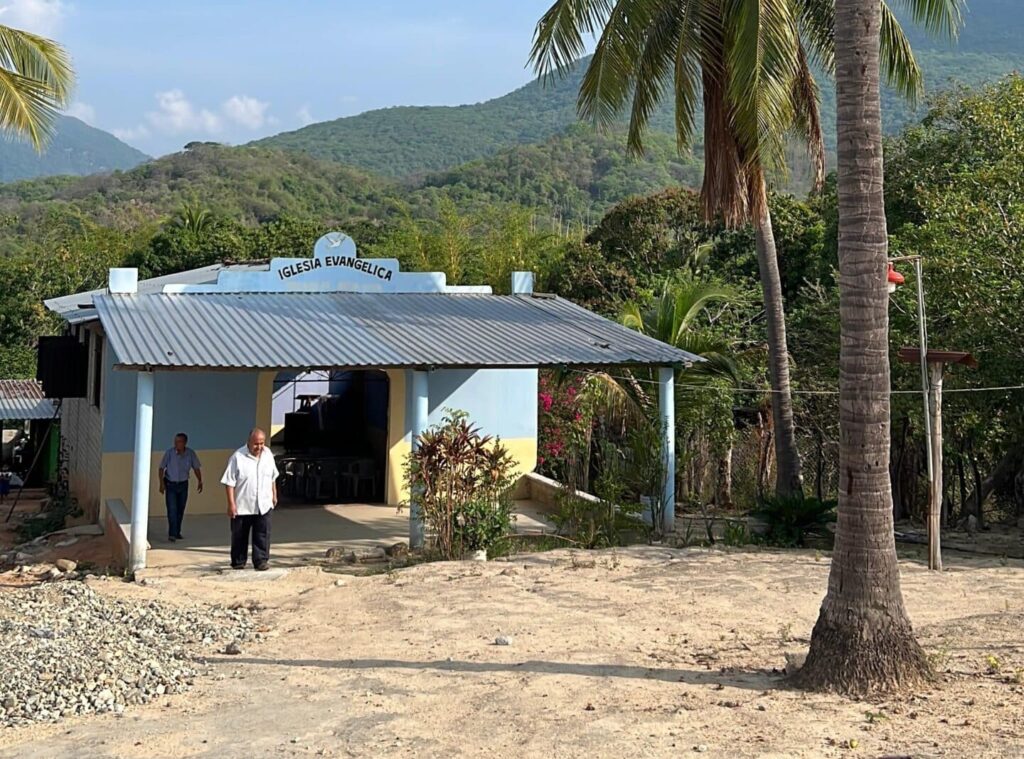
As José left, and I pondered his and Maria’s stories, I noticed a connection: they had both known Jesus for some time, and they both carried wounds that had led them away from the Church.
So much of the time, when we think of Christian medical missions, we think of new people coming to Christ. This is important, of course — we go for those who do not yet know — but we must also remember those who once knew, but have now forgotten, Jesus’ love.
Our Father is always sowing seeds. Some are sown onto the hard ground, where they grow up quickly but cannot develop deep roots, so they die. I think these people might be even harder to reach: they know the truth, but they also carry rejection, confusion, and betrayal (whether self-inflicted or circumstantial).
Meeting José and Maria was a reminder to pay attention to these people: how do we love our brothers and sisters, and look after them so they grow up in Christ – so we don’t have to offer them ‘spiritual milk’ forever?
Simple: we need eyes to see, ears to hear, and a willingness to trust His heart and intentions. Our Father is always asking after His children.
Interested in supporting or joining future medical missions trips with SEAPC? Reach out to Letícia through info@seapc.org to learn more, or click on the orange button below to sow into what God is doing through Christian medical missions around the world.
"...This day is holy to our Lord. Do not grieve, for the joy of the Lord is your strength.” Nehemiah 8:10b
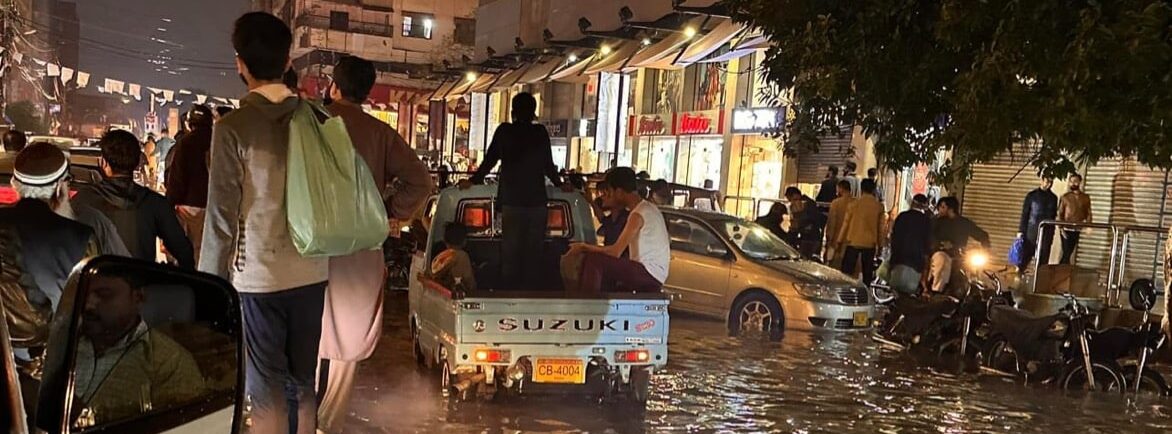
Would You Leave Your Home for Jesus?
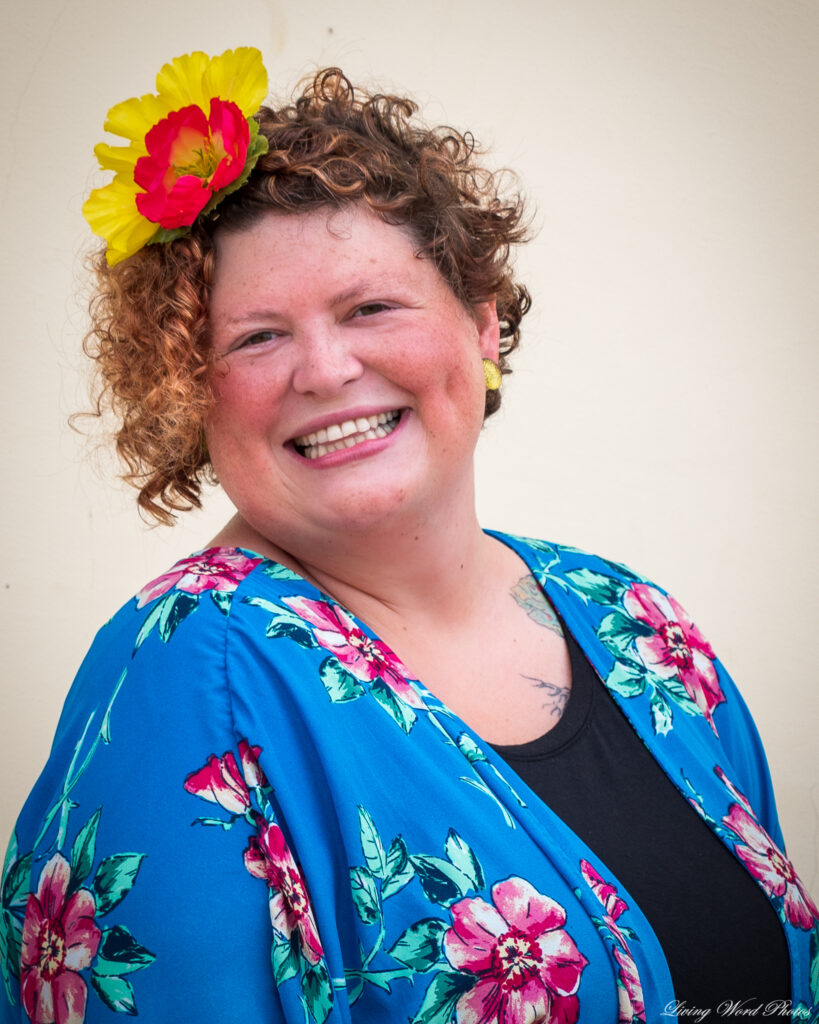
Table of Contents
I love NT Wright, and especially his New Testament for Everyone series. Over the last couple of years, I’ve been reading his commentary on the book of Mark, and I really like how he emphasizes Jesus serving others from the very beginning of his ministry. In the book, Wright usually starts by summarizing a particular section of scripture, before giving his own translation of the original Greek text, and then sharing some deeper thoughts.
There’s a moment in Mark where, just after meeting the rich young ruler, Jesus addresses his disciples. He starts talking about people who leave their home, their family, and their possessions for the sake of God’s Kingdom — and He promises those listening, “You will be rewarded for what you have done.” (I’m paraphrasing Mark 10:29-30.) One thing I appreciate Wright highlighting is that this promise is for today: not just in the age to come, but in the present age.
Someone actually prophesied that specific scripture over me, and I’ve thought about it a lot since, especially during my time serving overseas as a missionary in Cambodia and Pakistan. When I was in Asia, I had the privilege to teach English through SEAPC Cambodia’s Water Drop curriculum (based on My Precious Book, a bilingual Bible storybook). As I was living by faith, I always assumed that personal blessing from the Gospel of Mark meant that God would give me an actual, brick-and-mortar house one day.
Coming Home
Sometime last year, I told God as much: “Lord, I’m still living in ministry housing; am I ever going to have a place of my own?” And He was like, “I’ve already given you homes.” It took me a while to work out what He meant, but after returning from a short-term teaching trip to Pakistan last year, I realized God was right… as He always is!
Before I landed in Pakistan for that trip, I stopped by Cambodia, where I had served on the Water Drop project for two and a half years. I visited my church family there, and you know what they said to me? “Welcome home.”
The matriarch of that community — who, the first time I hugged her, felt like a wooden board, it was so awkward — called me over in affectionate Khmer: “Kaun-srei!” (“Kaun-srei” means “daughter” in English.) She considers me one of her kids. The whole time I was there, everyone kept repeating, “You’re family.” I might have been the only foreigner, and I didn’t look like them, but that didn’t matter.
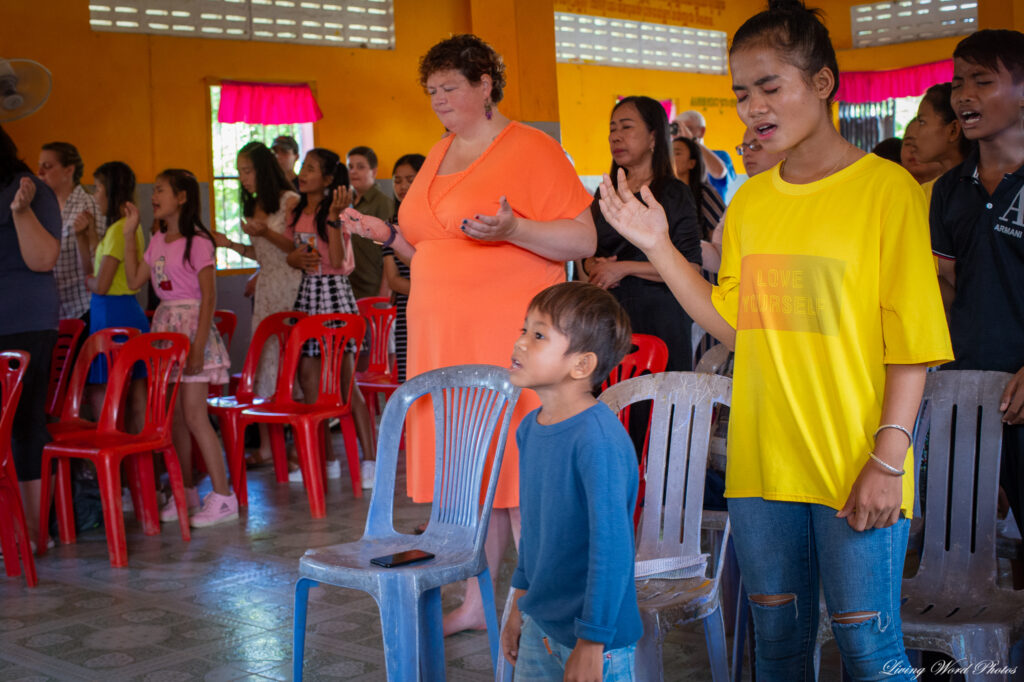
More Than We Can Ask or Imagine
Sometime after I got back from that trip, I travelled up to Ellwood City, PA, which is about an hour north of Pittsburgh. There’s a site the Salvation Army uses throughout the year as a retreat center called Camp Allegheny. From the ages of 15 to 19, I spent my summers working there; it changed my life.
I learned so much about servant ministry, and especially about what it meant for Jesus to wash his disciples’ feet. I never literally washed feet, but I did have to handpick lice out of kids’ hair so they could stay at camp. I tried to do that in a way that gave the kids as much dignity and respect as possible, so they could make beautiful memories and have the chance to know Jesus. It was an unforgettable experience.
Anyway, a friend of mine, who is a Salvation Army officer, posted about a free overnight “Word and Worship” event at the camp. I thought, “Dude, I’ll go…” but I had no idea why. It just felt like the Lord wanted me to go. When I got there, it turned out that one of the women helping prep the food and coffee knew me. Not only did she know me, but she and her husband were responsible for sending me to the Salvation Army Seminary years ago — talk about paths crossing (they had only recently been posted to this camp).
The instant she saw me, she said, “Welcome home.” And her words hit home. I had never really thought about it, but that camp was a place I would consider home. It might not have my name on it, but I always knew I was welcome there, and the Lord had brought me there for that time and place. I wrote her a thank-you email afterwards, and she replied, saying what an honor it was to welcome me to one of my homes, even though she had no idea the Lord had been speaking to me about that.
Making Sense of God’s Promises
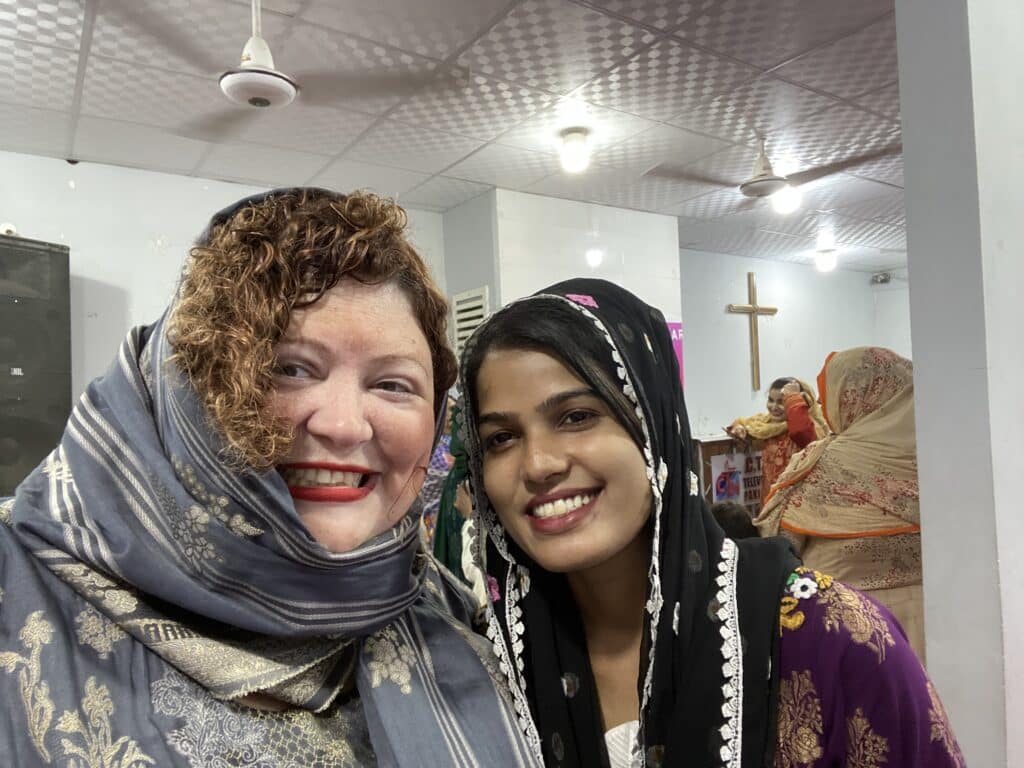
God may not bless in exactly the way we expect (at least if my experience is to be believed), but He is always faithful to His promise. Every time I head out with Jesus for His Kingdom, I learn that afresh. Nothing ever looks like the “black and white” I want it to. Usually, I discover that His view is much wider, and way more colorful than I could ever have imagined — but He always gets it right.
I’m not the only one with this experience. In places like Pakistan, I’ve seen people really suffer; some even live in homes without roofs. And yet I’ve seen God give those people immense joy. That doesn’t make their circumstances any less difficult or challenging, but it doesn’t diminish God’s goodness either. He blesses them in other ways. Seeing that firsthand has helped me learn that lesson in my own life: if I go somewhere determined to see God move in a particular way, I’m probably going to miss what He’s actually doing.
But how about you? Do you know what God is doing? Are you willing to step out and find out? I dare you to see just how faithful He will be.
"Truly I tell you," Jesus replied, "no one who has left home or brothers or sisters or mother or father or children or fields for me and the gospel will fail to receive a hundred times as much in this present age: homes, brothers, sisters, mothers, children and fields – along with persecutions – and in the age to come eternal life." Mark 10:29-30 (NIV)

"I have a dream..." (Business and the Kingdom of God)
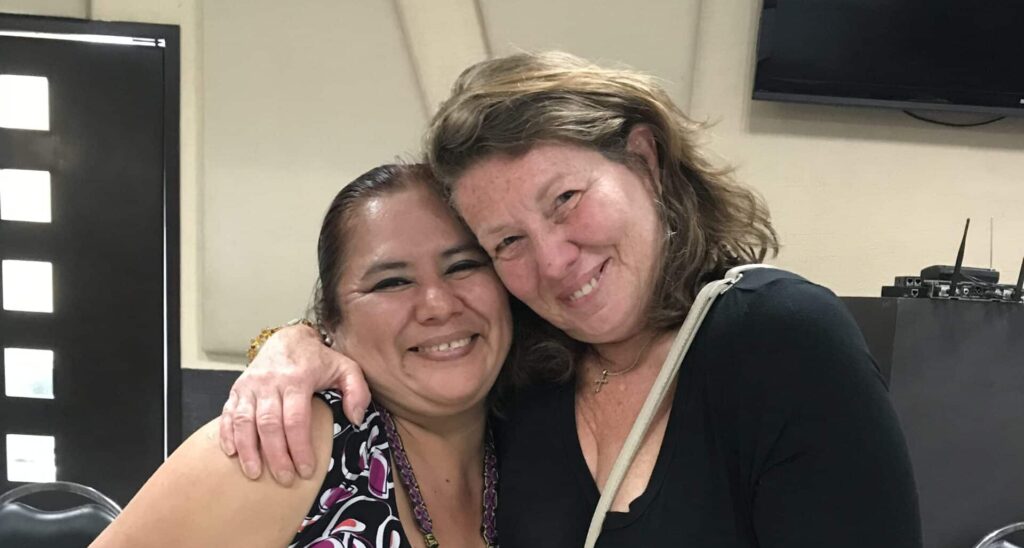
Table of Contents
In 2022, at the Friends Around the Table Gathering in Guatemala, God formed strategic friendships between His people. Laurel, a long-time medical missions veteran, met Doug and Renee Duffy, missional entrepreneurs in Central and South America, and ideas for ministry started flowing. They launched their first 'medical brigade' in Urraco, Honduras, in January 2024, partnering with local brothers and sisters the Duffys had worked alongside for several years, through a local non-profit, Vida Victoriosa ('The Victorious Life'). Medical needs were met, the young and old received prayer, and the name of Jesus was lifted up throughout the local region.
The following year (January 2025), they planned another brigade with the local church, and this time, Carol Vensel joined as part of the prayer team supplementing the medical professionals. She arrived in Urraco a few days before the brigade to sit on a judges panel for Dream Tank, a microfinance investment competition for local businesses in the community. We caught up with Carol a few weeks ago to hear more about her time serving on both the panel and in the medical brigade...
Our vision: to bring Kingdom transformation to Honduran communities through spiritual and economic development. – Vida Victoriosa
Can you tell us a bit more about the Duffys and the people they partner with in Honduras?
Doug Duffy is a missionary and businessman who has been in business in the US and Costa Rica for over 40 years, in many different capacities. Several years ago, the Lord encouraged him to take all of the experience he had gained and give it away, in the form of a multi-language microenterprise training course rooted in biblical principles. Since then, people from all across Central and South America have either taught or participated in the course.
The course is for existing and prospective small business owners, and it lasts about 3 months. The seminars and homework involved are intensive, but if the students are diligent, they should come out of the course with both a supportive community (in the form of a local, monthly business club) and a comprehensive operating plan to launch their business. They will also have the chance to enter something called Dream Tank.
If that sounds a bit like Shark Tank, that’s because it is – but with a Kingdom emphasis. The participants put together a 30-minute presentation on their business (including time for follow-up questions) to ask for investment. The ask could be for something as simple as purchasing a new piece of equipment, or for something larger and more complicated. The winners receive interest-free loans to support or cover the investments they have asked for, as well as ongoing business mentorship.
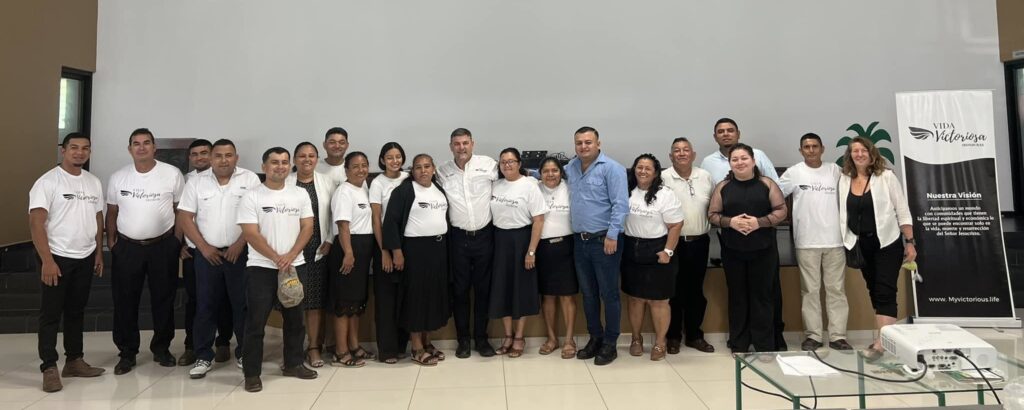
How did you get involved with Dream Tank?
Doug knew I was joining the medical brigade, and when I showed interest in Dream Tank, he invited me to come early to join the business judges panel. On the panel, we had to decide who needed to do a lot more work, whose ideas were great but just needed a little more fine-tuning, and who would receive the grant money.
We met each person very quickly (maybe 5 minutes per person) to give feedback about what we liked and where we thought they could improve, so they could take those ideas and work on them before Doug’s next visit (Doug went back in February to meet with each of the participants one-on-one, and to present the winners with loans for the investments they requested).
I was invited onto the panel because my husband and I owned a small commercial refrigeration business for almost 40 years. As a small business owner, I could understand some of the participants’ challenges, and I could share my experience to help them work through them. I might not know exactly what they’re struggling with, but I had some insights that could help.
For instance, one lady wanted to operate a restaurant, so she requested a fryer. I could see it wouldn’t work: the fryer was just too big for the volume she was talking about. The oil was going to go bad (you don’t want oil sitting in the sun while you’re cooking fish), and people would get sick, as the refrigeration wouldn’t be right. I suggested she scale her fryer down to almost a family-size unit. I hope I added a little bit of value.
On that note, Doug is actively looking for businessmen or women who would be interested in 1) teaching on the course, 2) serving as a Dream Tank judge, or 3) providing business mentorship on an ongoing basis. If that's you, or you know someone who might be a good fit, please don't hesitate to reach out to him. (Simply click one of the buttons below to email or call Doug directly.)
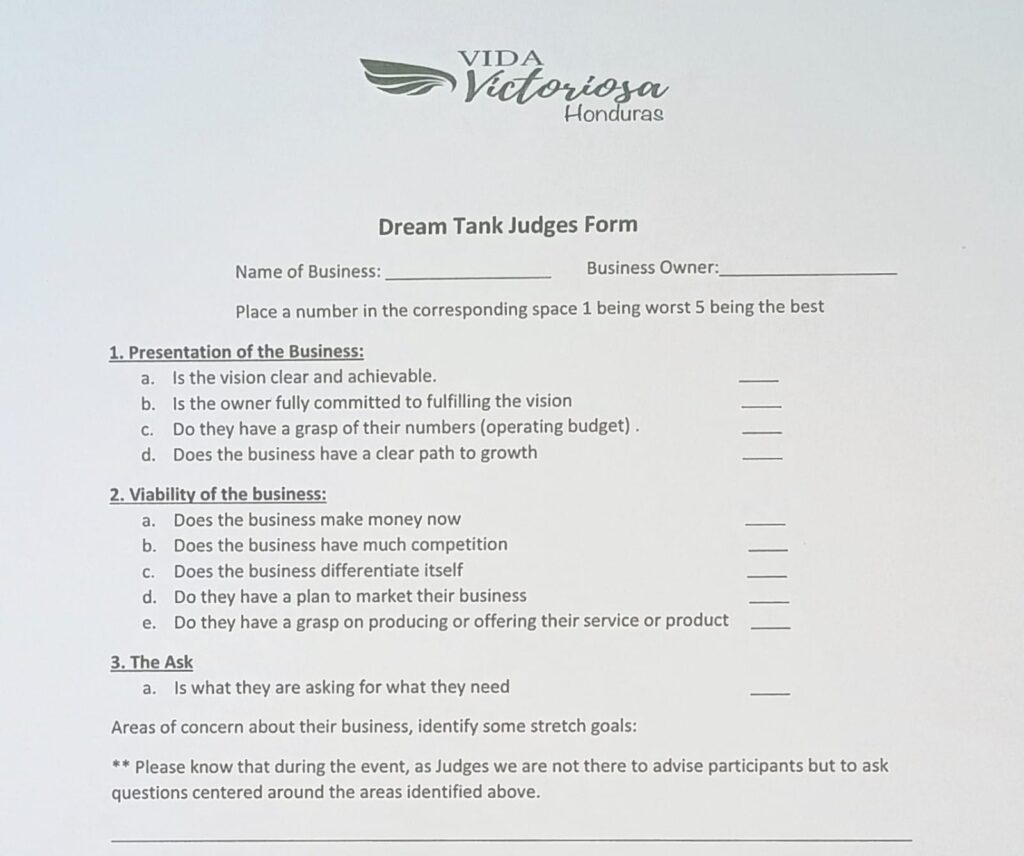
How did you find the experience? What did you notice about the participants?
I absolutely loved being a part of it. We heard from 12 different entrepreneurs. Each one was so valuable. One was making plantain chips (he started as a plantain farmer and now he’s processing and packaging them for the local market); another business was an automobile and motorcycle repair; others still were really small, for instance, a pot-pourri (a tiny convenience store).
It was so, so enjoyable and precious to be there and hear each person’s dreams: what they hope to do next with their lives, in their communities. I would love to be part of the next Dream Tank so I can check in with them to hear about their progress, and the way they have used their funding (if they were one of the loan recipients).
Speaking of progress, I heard from Doug that Martina, a restaurant owner who showed up to support this year's Dream Tank entrants, was previously awarded a stove and a fridge, and subsequently saved up to buy her own freezer (so she could add frozen chocolate bananas to her menu). In the past year alone, she has opened a second location and added delivery services. What started as a small dream (a three-table restaurant) is now thriving.
Martina, as well as many other past participants in the course, is part of a unified local community (the monthly business club I mentioned earlier). They meet to help solve one another's problems, share their wisdom, and follow Jesus together. Everyone seems to be friends. Now, some seem to be closer than others (as some of the people who were there are based a little further away), but at the very least, they have spent meaningful quality time with one another on the training program.
The program itself is connected to a local church, which also hosts the medical brigade. It’s not just a one-track thing; they work in all sorts of different ways to share the Gospel and serve their communities. One of the local people Doug and Renee partner with to teach the course, Pastor Rony, also leads that local church. One of the translators — she was awesome — works at a local Christian school and is also a pastor. The man who runs the motorcycle repair business I mentioned is also a bivocational pastor; he wouldn’t survive without his business income.
Pastor Rony is a key part of the business network. Like I said, he helps teach some of the classes, and he knows all the people intimately. When Doug gives feedback, Rony knows their personal story and context — he can say what they are struggling with. Doug might comment on the numbers and logistics, but Pastor Rony sees every day how hard they are working, and where their hearts are. I think that makes them a great team: they can see and carry both sides. Together, they can see and steward a bigger picture.
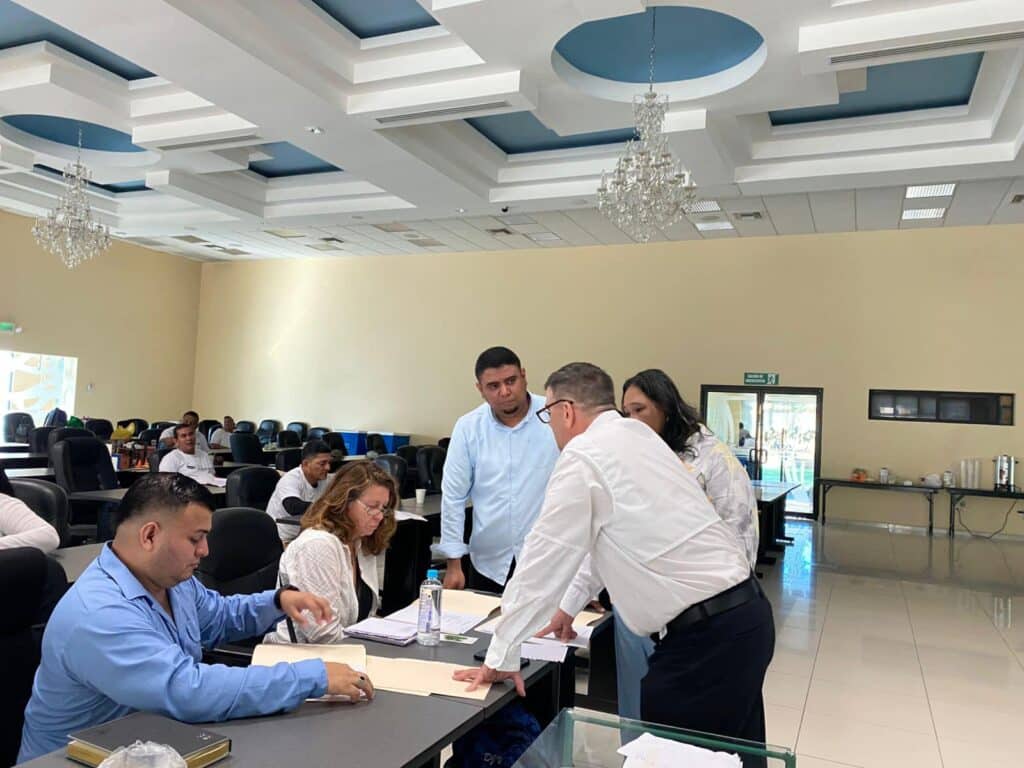
Did any of the entries stand out to you? If so, why?
One guy, Dixon, asked for a Cricut cutting machine to make lettering on ribbons. His was probably the most creative business idea of all the ones we heard. He had used YouTube to teach himself how to craft beautiful flower bouquets from ribbon thread, which he would then sell locally. He started out making roses, and then branched out into all different types of flower bouquets.
If he were able to buy the machine, he could develop his business further by offering ribbon bouquets that said, “Happy Birthday!”, “Happy Anniversary!” and other bespoke messages. Let me tell you, these bouquets are absolutely beautiful (just look at the photos below). It’s crazy to think these fake flowers are just made of ribbon, and listening to his dream — how he came up with this idea, how he started his business, and how he wants to expand what he is doing — was amazing.
To ‘put a bow’ on this story, it just so happened that someone had donated one of the Cricut machines Dixon had asked for to Dream Tank the previous year, and it had been sitting in storage, unused. So, of course, they just gave it to him — exactly what he needed! It was so cool to see God work in the little details like that.
When I teach kids, I tell them to pray with their hands open wide: to receive, but also to give back. I believe you can take whatever talent you have to love people and give it back to God. I love seeing that with kids — seeing the talents God blesses them with when they’re little — and I love seeing that with adults in business like Dixon who think, “God is in this, and I can do this!”
Events like Dream Tank help the participants realize that they can live out the dreams God has placed in their hearts: they learn what is possible and what they need to do to succeed, instead of living with an “I could never do that” mindset. They don’t have to be afraid because they’ve received good training, they have mentors guiding them, and a community to encourage them. Even the program name, Vida Victoriosa, feeds into this, as it means "Victorious Life."
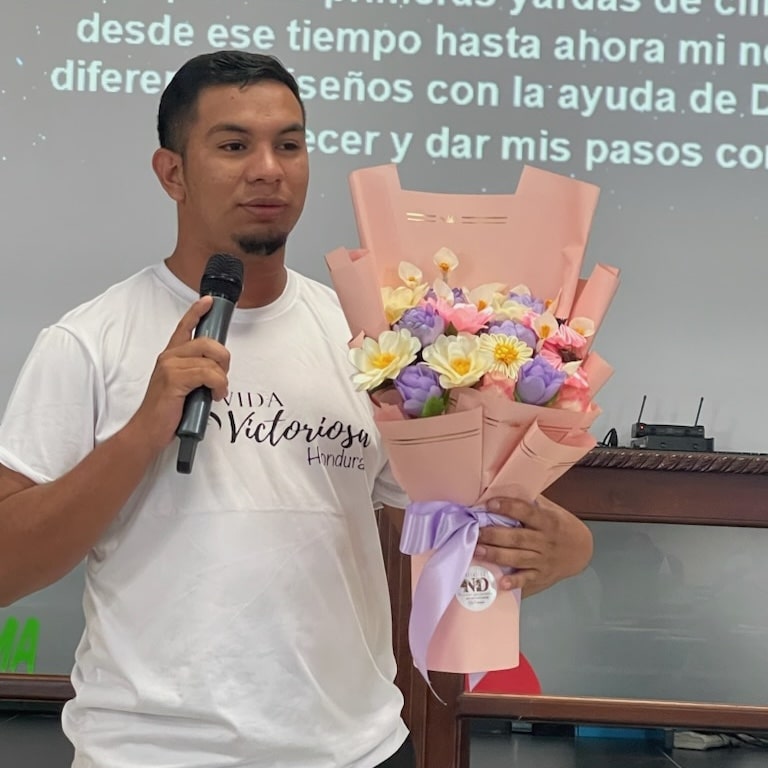
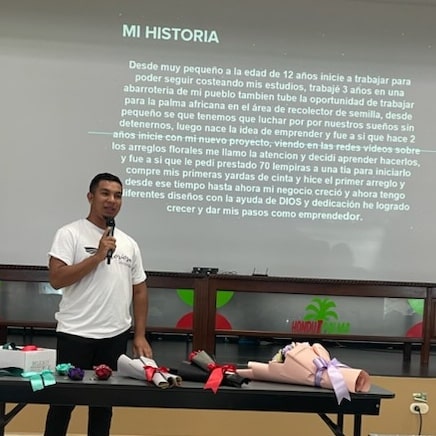
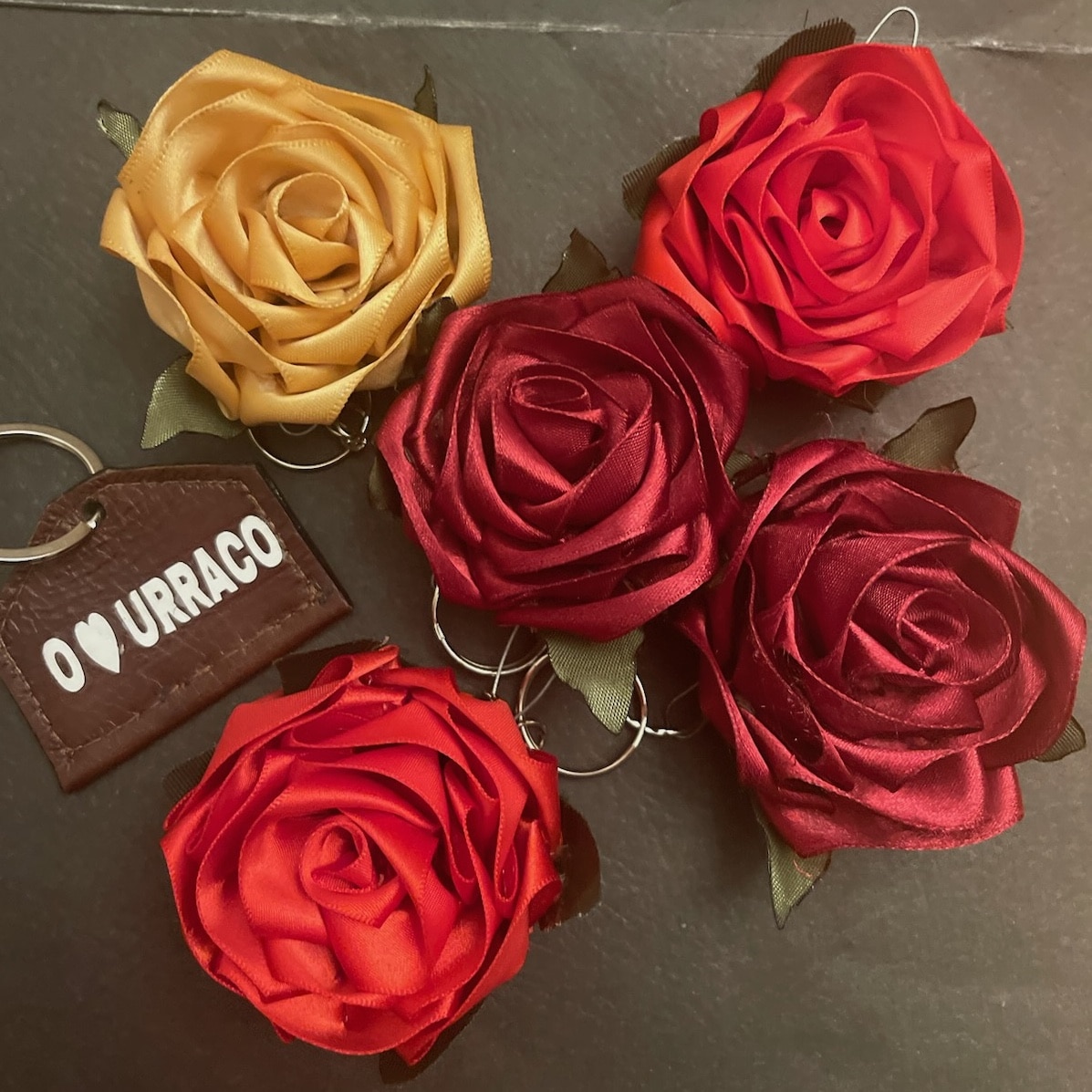
Dixon sharing his story during Dream Tank, plus a sample of his handmade ribbon roses.
How might businesses like these advance the Kingdom of God in Honduras?
There are quite a few Christians in Urraco, and it’s a loving community, with exceptionally loving kids — they all looked out for each other so well that I couldn’t tell if they were brothers and sisters or just friends — but there’s a lot of darkness in the area too. It’s quite secluded, and travelling there is not easy: the roads are flat, but full of craters. You have to drive very slowly to get in. Most people use motorcycles; very few have cars.
During the medical brigade (we served 700-800 people over four days), I met two young boys. I was in the prayer room when their grandmother brought them in. She had just been treated, and everyone had to come through the prayer room before they got to the pharmacy.
Before we prayed, she told me, “I am missing five boys.” I didn’t understand what she meant, but she explained, “Three were murdered, and two died in accidents.” That was why she was raising these young boys: their dad was one of the casualties, and all of their uncles were dead.
Most of the time, when you pray with the kids, they're quiet. They might agree to pray with you, but quietly. Not these two boys; they prayed. Their grandmother prayed. It was powerful, and they touched my heart. They were just second-graders, but they had already been through so much. I doubt they were the only ones.
When I think about the challenges these kids face, and I think about businesses, I can see how encouraging and equipping entrepreneurs in communities like this can make a huge difference. They can bring dreams and prayers to life, they can bless people in their community, and they can share and witness about Jesus as they’re doing it. For me, that’s what Godly business is all about: seeing business as an opportunity to bless and transform entire communities, not just provide for one person or family.
"For me, that's what Godly business is all about: seeing business as an opportunity to bless and transform entire communities, not just provide for one person or family."
There was one girl I talked to who did not present at Dream Tank but who helped with the brigade. She was younger — I’m guessing around 20 — and she had gone through the business classes. Someone asked her about the competition, and she replied, “Oh, I’m too scared to do that…” We encouraged her: it’s just one small step! Maybe she’ll try next year. She’s still interacting with the community, and because of that, I’m sure she’ll get to a place where she thinks, “I can do this too.” That’s what dreams from God are all about: you have to ask God, “What can I do with this?” and then take the next step.
I would love to see partnerships and communities like this in so many other mission initiatives. I hate when you go somewhere on a mission trip, leave, and then think, “We didn’t do enough.” You want to know that there is at least one step the local community can continue with. Dream Tank and the business training are exactly that: huge steps — and God knows where those will lead…
“‘In the last days, God says, I will pour out my Spirit on all people.Your sons and daughters will prophesy, your young men will see visions, your old men will dream dreams." Acts 2:17
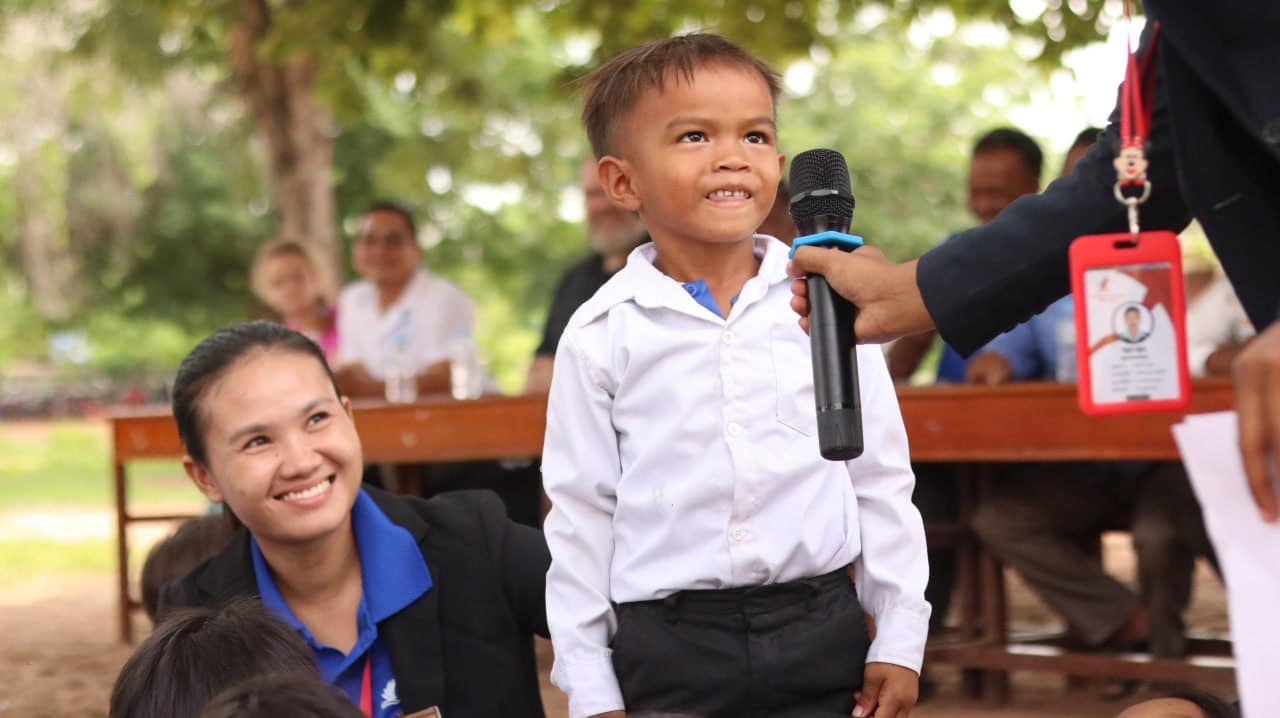
A Next-Generation 'Super-Highway' (SEAPC Tech Centers Story - Pt. 2)
Table of Contents
How do you manage your emotions following a nation-changing event? How do you transition well in the wake of such a high high? After the pivotal BC Arise ceremony in 2014, Matt had the amazing privilege and daunting responsibility of taking the work forward, in partnership with the government and the team in Cambodia.
The focus: expanding the N+1 schools and training program all across Banteay Meanchey province, and building the nine technical centers: building a (metaphorical) 'highway' network that would connect the province with its next stage of growth. This project would take 10 years to get up and running (if you can do the math, you can figure out that those centers were finally, joyfully completed last year, in 2024).
As with the schools, SEAPC had an important agreement in place: we would help to build the technical centers, provided that we had permission to share Jesus’ love in and through each one. Sure enough, since they have been operational, the tech centers have been used for youth rallies, English camps, and many other soul-saving initiatives.
That’s not to say it’s all been plain sailing; far from it. In Part 1 of this story, we mentioned SEAPC’s 2014 Annual Report, with its daring title, Changes Are Coming. As we shared, those changes did in fact come, and are still coming, but they took considerable effort, teamwork, and the inspiration of the Holy Spirit to come good.
The process of that change is the crux of our story today — how exactly God multiplied the work through multiple generations, and the creation-sweeping 'super-highway' vision the Holy Spirit has imparted for Cambodia’s future, and beyond…
Generational Synergy
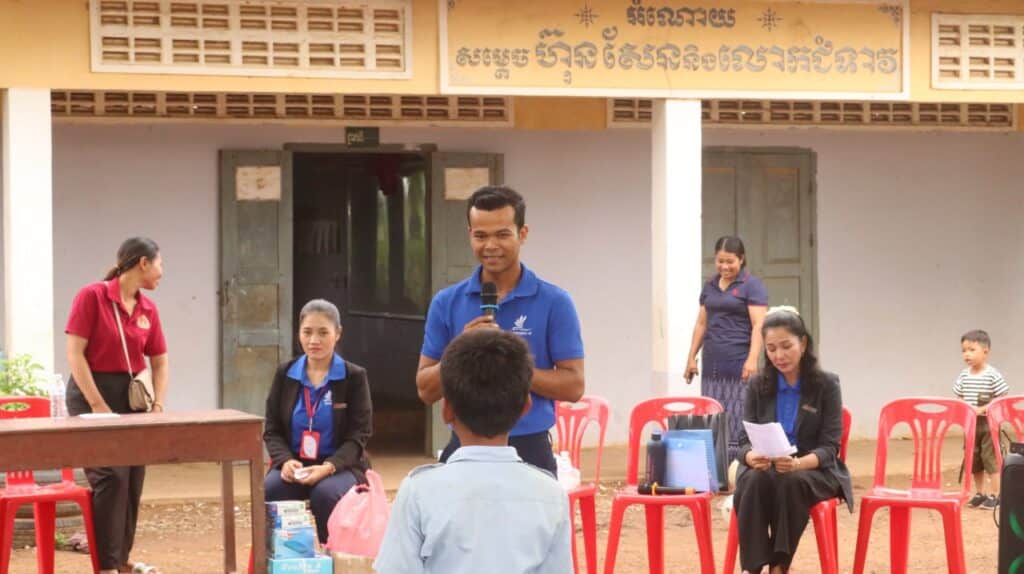
As Matt puts it, “Our God is the God of Abraham, Isaac and Jacob. If we believe that is true, then we need to think of God working trans-generationally. Every time we see an open door for ministry, we shouldn’t just include three generations in a token way, but we should be operating actively through each generation.”
This desire — to see God working trans-generationally — was and remains a key feature of the work in Cambodia. Indeed, in Matt’s opinion, it’s “one of the greatest stories to come out of Cambodia Arise,” and it’s a story empowered by the Father’s word through Mark, Matt’s dad: “In the power of His resurrection, from the minefields and the killing fields, the Lord will raise up a generation that is Christ-centered, Bible-based, Holy Spirit-filled and academically excellent — a generation that will lead Cambodia into its destiny.”
When Matt was invited to help lead the project from 2014 onwards, in place of his earthly father, this is where he and the rest of the team started: honoring the Father’s word, and prioritizing prayer. “The Lord’s Prayer was our first initiative in the schools. We had to get the Word of God into the hearts of the next generation.”
Prior to this, they had already done some work with the preschoolers, the kindergarten students, and some elementary and high school students. From 2014 onwards, however, they focused even more attention on the 4th to 9th grade — middle school. This was the demographic at greatest risk of leaving school, Banteay Meanchey province, and even the country. So many of the kids in this age range were disappearing to work in the rice fields or migrating to city centers like Siem Reap, Phnom Penh, and Battambang for work opportunities.
Accordingly, the BC Arise team’s goals were to: 1) increase the graduation rate, 2) decrease the dropout rate, and 3) provide technical training and local job opportunities — all with a foundation and focus on prayer and the love of God in Christ Jesus. These goals would facilitate the kind of trans-generational impact we were hoping for, especially through the Tech Centers (as any locals interested in skills training could sign up to learn, no matter their age).
Perhaps the greatest challenge to these goals being reached, however, was not the 4th to 9th graders they would be serving, but the teachers they needed to partner with. Many from the older generation, who had survived the war and become teachers, were stuck with limiting mindsets from the conflict and centuries of religious bondage. Once again, God had a plan, and God provided the precise word needed for breakthrough…
Discarding Graveclothes
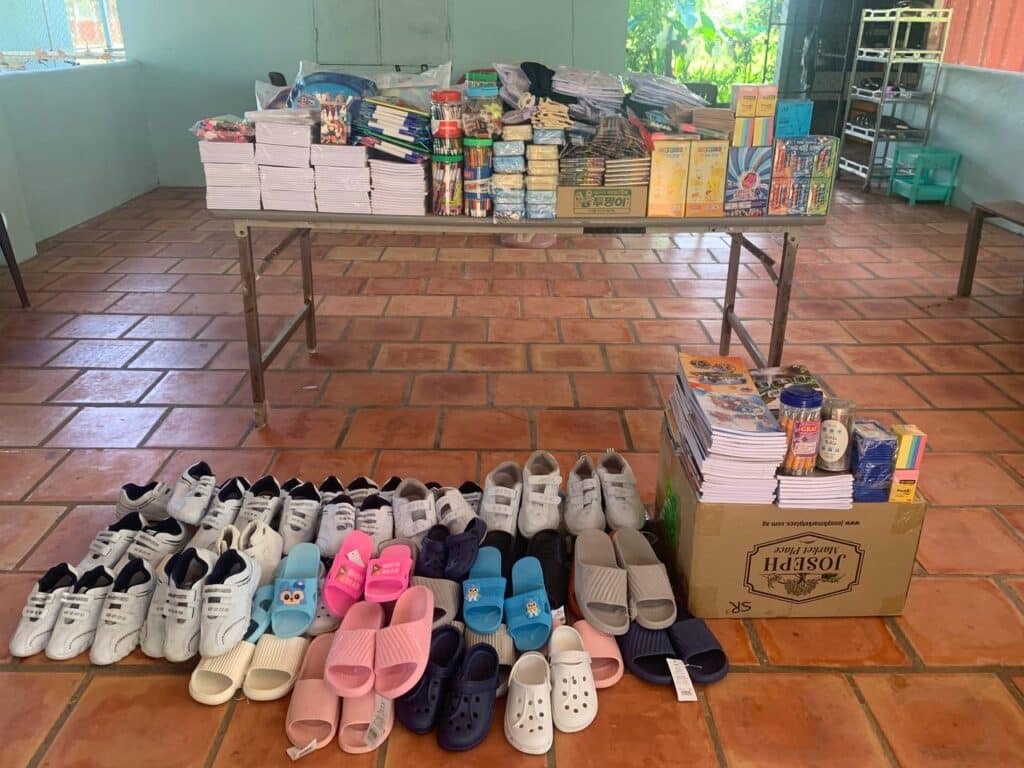
As they prayed, Mark, Pastor Sinai, and Bun Heng, BC Arise’s representative to the national government, found inspiration in the story of Lazarus as the key to reaching the teachers. They initially called this teaching Coming from the Tomb, but eventually landed on Removing the Grave Clothes: “What clothes are keeping us bound, even after we have come out of the tomb (the tomb of the Khmer Rouge’s violent regime)?”
The teaching was simple: when you come “out of the tomb” in the resurrection of Jesus Christ, you still have to undress, or else you will walk around like an Egyptian mummy! In Cambodia, they identified the primary cultural “grave clothes” as: 1) the caste system, 2) Buddhist fatalist thought, and 3) the poverty cycle in the absence of good education.
The intertwined narrative behind the caste system and Buddhist fatalist thought went as follows: “I was born in poverty and I will die in poverty. My sons and daughters will be born in poverty and they will die in poverty, too. That is the caste we have been born into. I will never emerge from my current state or caste, but I will be reincarnated in a future lifetime.” Sadly, this narrative also had deep roots not just for the caste you were born into, but how dark the color of your skin was.
As far as the poverty cycle was concerned, there was a fairly obvious culprit: the removal of mathematics and science from public education. If the 100-strong team in Banteay Meanchey could get to work tackling these three issues in the resurrection power of Jesus Christ, there could be tangible hope for the nation.
Everyone agreed on the problems, and on the scriptural metaphor to “undress” those problems, but there was still the big question of how they would put it into practice — what those spiritual, educational, and economic solutions would look like in the flesh. Cambodian cultural keys were required…
Cambodian Culture Keys
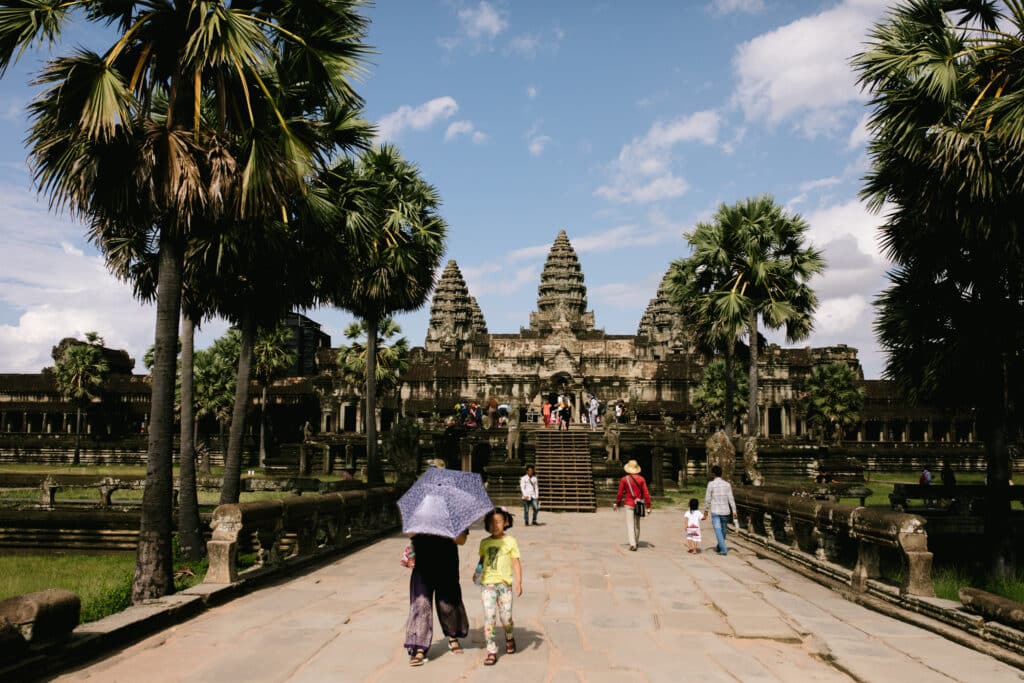
The SEAPC team had what felt like an endless stream of ideas when it came to producing products for the local market. They brainstormed enterprises involving honey, then lemongrass, then preservatives, canned goods, and embroidery — before shifting to fishing flies, computer science, and vegetable production for local markets. They even released a White Paper documenting everything they had discussed… and yet it still felt like something was missing.
As Matt has great delight recounting to Cambodian friends whenever he gets the opportunity, “There were brilliant individuals in Cambodia who created something in the middle of the jungle that the whole world travels continents to see today: Angkor Wat. We might need to filter out some of the horror and slavery involved with building that structure, but we can celebrate it as an architectural marvel. I will often encourage young Cambodians to know, ‘No other culture was able to build something that magnificent in that era — and that means God has placed that same Cambodian brilliance deep within you, ready for you to celebrate and press into.”
With that beautiful heritage in mind, everyone sensed God’s leading when the Cambodian government offered the missing puzzle piece: they suggested the team teach the Khmer language and literature (notably, the Khmer Rouge violently excised and burned all Khmer literature and art during their reign of terror).
Since the N+1 educational program started, we’ve witnessed the students experience immense joy from these two subjects in particular — and we have also come to see them as a transgenerational bridge: a way for the next generation to receive righteousness, peace, and joy from their forebears, so they can move forward faster and further than they would on their own.
Over the years, we’ve added other strategic subjects like electrical wiring (the electrical grid only reached Banteay Meanchey in 2016), as well as working through geographical challenges with the hydro farming project (water from rice paddies can be a blessing and a curse when it results in yearly flooding and droughts, so the team has researched and implemented an effective provincial drainage system).
We have seen all of those flow together such that our retention rate is now the highest it has been in 20 years, and our graduation rates have exceeded all other Cambodian provinces. When they ask, “How?” The local staff respond, “Jesus Christ and prayer.” Cambodia’s future is bright.
A Highway for Our God

Everything we have witnessed so far, and everything we hope to see God accomplish in the years to come, can be summed up with a metaphor Matt refers to often: Cambodia Arise is like the “guardrails on a superhighway.” Historically, the Cambodian people might have “driven too fast and gone off the edge” (as under the destructive Khmer Rouge), but with “guardrails” like prayer in public schools, the N+1 program, and the Tech Centers, we trust that one day, no cars will “go over the edge” and many will instead make it to our Father’s intended destination.
It’s a metaphor that is deeply rooted in scripture — in God’s redemptive promises for all mankind. In Isaiah, for example, we read that God, “…will turn all [His] mountains into roads, and [His] highways will be raised up,” so that captives and exiles, “will come from afar, some from the north, some from the west, some from the region of Aswan.” (Isaiah 49:11-12).
Further on in Isaiah’s prophetic writing, we see this promise extend beyond the people of Israel: “Pass through, pass through the gates! Prepare the way for the people. Build up, build up the highway! Remove the stones. Raise a banner for the nations. The Lord has made a proclamation to the ends of the earth: ‘Say to Daughter Zion, ‘See, your Savior comes!’’” (Isaiah 62:10-11).
There is still important crisis work to be done today (“removing stones and grave clothes”), and we may still need to “send ambulances for vehicles crashing off-road” — for example, in the form of children’s homes for families going through emergency situations like bondage in the "flesh trade" — but our hope extends beyond those temporary measures to the One who is the eternal focus of our worship.
To speak clearly, the highway leads to Jesus, the King of kings, who declared about His atoning death on the Cross, “And I, when I am lifted up, will draw all people to myself.” (John 12:32). When the nations partner with God to see His resurrection purposes on the earth, we know they are moving in line with His will, towards the Heavenly City the same author foresaw at the end of human history:
“The city does not need the sun or the moon to shine on it, for the glory of God gives it light, and the Lamb is its lamp. The nations will walk by its light, and the kings of the earth will bring their splendor into it.” (Revelation 21:23-24).
This is the vision we are sold out for. This is what makes “removing the stones” and “erecting the guardrails” on God’s highway worth it. We want to see Jesus lifted high, and for His banner to fly across every land, with His name on every person’s lips. We know there is so much beauty and splendor to be found and redeemed in every culture — blessings that God’s royal children can bring to Jesus as an offering — and we are committed to supporting that vision with everything we are, and all that we have. Will you join us on the Way? Will you Give, Pray and Go?
Pass through, pass through the gates! Prepare the way for the people. Build up, build up the highway! Remove the stones. Raise a banner for the nations. The Lord has made a proclamation to the ends of the earth: "Say to Daughter Zion, 'See, your Savior comes!'" Isaiah 62:10-11
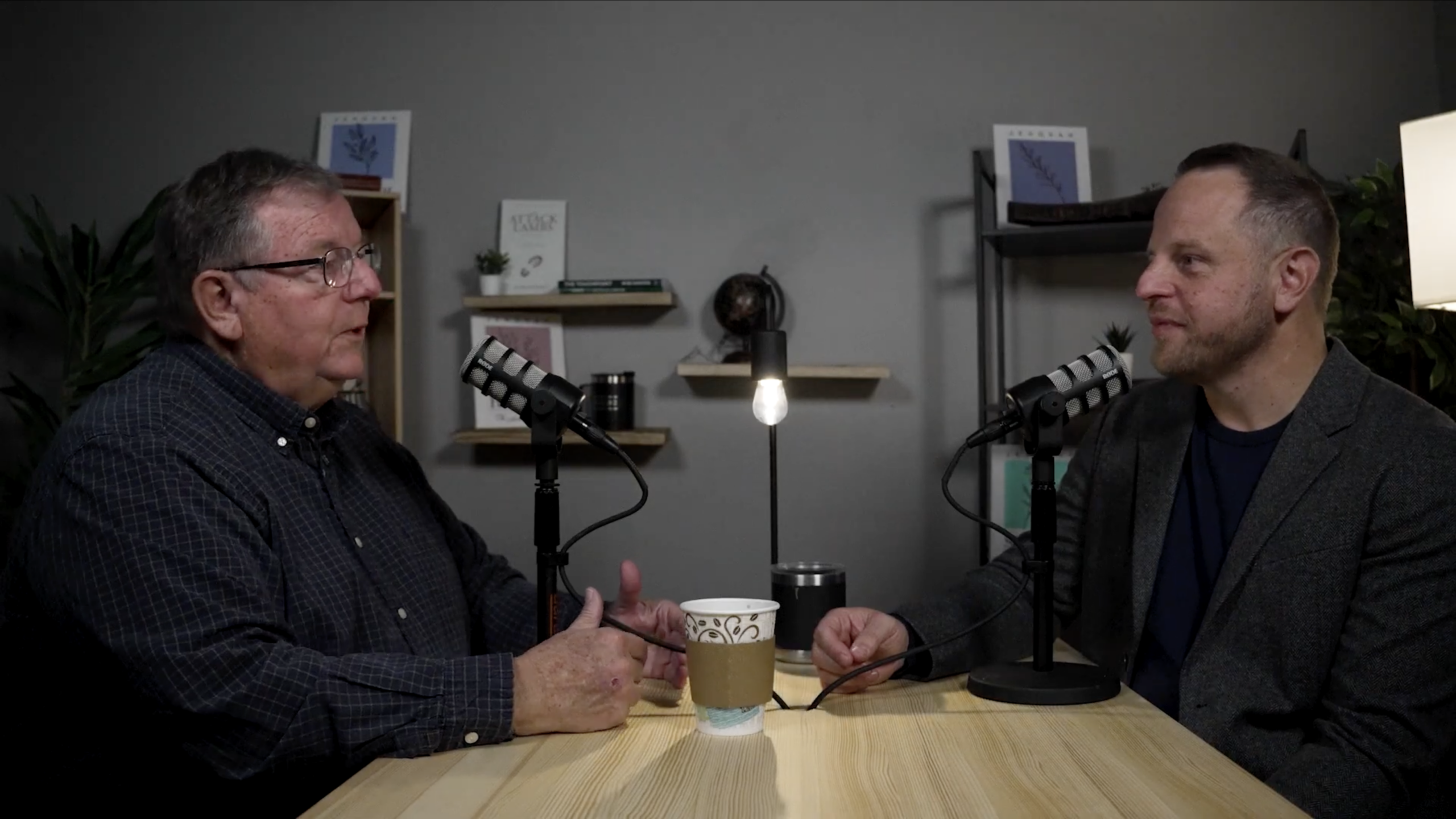
Mark and Matt Geppert - The History of Prayer Walking and The Attack Lambs
In this special SEAPC Podcast, Mark and Matt Geppert recount their 40-year journey in prayer walking.
Mark and Matt Geppert - The History of Prayer Walking and The Attack Lambs
In this special SEAPC Podcast, Mark and Matt Geppert recount their 40-year journey in prayer walking. They share inspirational stories from their experiences in various cities and countries, detailing the impact of their ministry on local communities. The discussion covers the conception, publication, and global influence of Mark's book, 'Attack Lambs', and its subsequent editions and translations. They emphasize the power of simple acts of prayer and obedience, the growth of the prayer walking movement across diverse cultures, and the continuation of SEAPC's mission through the next generation.
PARTNER TODAY

The Fields Are Ripe Unto Harvest: God’s Multi-Generational Wisdom in Cambodia (Pt. 1)
Table of Contents
Friends, we have categorically good news: the Kingdom of God is at hand, and the King is always at work to expand its boundaries in and through us. How do we know this? We’ve seen it — or, more accurately, we have witnessed it — on a national and international scale. “Of the increase of His government and peace there will be no end.” (Isaiah 9:7)
In 2014, SEAPC released an annual report entitled, “Changes Are Coming.” It focused, among other things, on the beloved nation of Cambodia. Today, we can say with great praise and thanksgiving, changes have come in that nation. Many of God’s promises to the Cambodian people have been fulfilled, and we trust they will continue to be fulfilled in the years and decades ahead.
As of 2024, SEAPC had the privilege of serving 488 public schools, with over 150,000 students, in Cambodia’s Banteay Meanchey province. Beyond that, we are overjoyed to report that, after 10 years, there are 9 completed technical training centers: one for each provincial district. Not only are these centers answers to prayer, but they are catalysts for job creation and a complement to the schools.
It’s easy to look back and declare, with the benefit of hindsight, that something was a ‘sure thing,’ but you would be hard-pressed to find anyone who, thirty years ago, could say anything positive about Cambodia’s future. For reference, that would be 1994, in the thick of the Khmer Rouge’s awful Killing Fields. And yet that is exactly the kind of hopeful, faithful prayer God led His people into — the kind of prayer that has fueled the pages of this two-part story today…
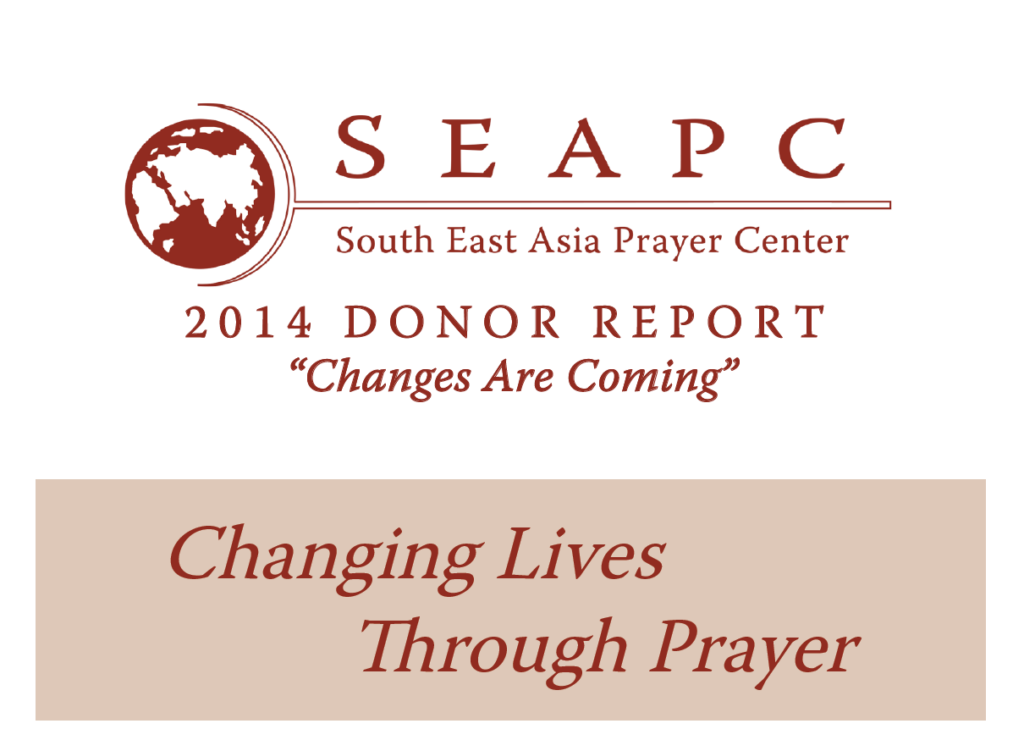
1. Plowing in Prayer
In 1994, God called Mark Geppert and Hubert Chan to walk and pray in Banteay Meanchey province. They didn’t know anybody, and the war was still raging at the time, but they went anyway. They traveled from village to village along Highway 6 to focus on Jesus and intercede for the devastated local community.
As they walked, prayed, and made friends, God gave them a promise to declare: “In the power of His resurrection, from the minefields and the killing fields, the Lord will raise up a generation that is Christ-centered, Bible-based, Holy Spirit-filled and academically excellent; this generation will lead Cambodia into its destiny.” They repeated this line everywhere they went.
As they prayed, they made friends in Cambodia. Those friends introduced them to other friends, and together, they prayed for open doors for the Gospel in the fields of healthcare, education, parenting, and economic development. The first open door for education came through Im Sethey, a government representative who invited them to serve the Rongko Cluster Schools with a renewed curriculum. The existing structure served around 4,000 students from 8 villages, from the 4th to 8th grade.
The renewal process would take time and work in a region only just coming out of Pol Pot’s reign of terror. The local people teaching in the schools had a beautiful heart for the children but were essentially volunteers at $1 per day, for four hours a day (teaching older kids in the morning and younger kids in the afternoon). At the time, the school buildings consisted of bombed-out, underdeveloped shacks.
God saw the teachers’ hearts and spoke a message of affirmation through the SEAPC team, acknowledging that what they already had (the people, resources, and curriculum) was excellent, and we wanted to offer them a more excellent way, which we called “N+1” (where “N” stood for the existing national curriculum, and “+1” stood for Jesus). The Cluster Schools gave a wholehearted yes.
Before the first brick was laid or class was taught in these renewed “N+1” schools, a small group visited the area to pray and declare a fresh word from the Lord. They stood on the corner of four rice paddies and proclaimed to the earth: “You are supposed to raise up a school. You know you are supposed to be a school. We take authority over the land and call forth this purpose.”
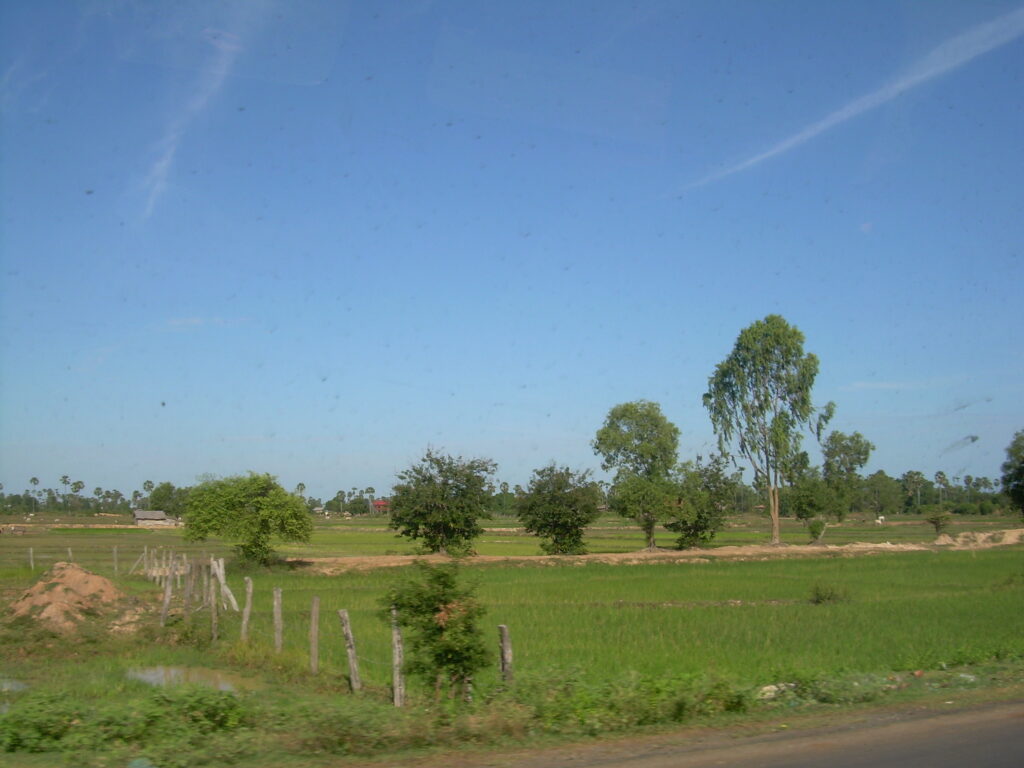
2. Sowing in the Word
Sure enough, the Lord’s Word prevailed. People from all over the world were moved to give generously, the plot was purchased, live mines were cleared out, a road was built, and the paddies were developed into a 3-building campus. Over the years, missionary teachers from other nations answered the call to train local teachers and to establish a curriculum with Jesus Christ at the center.
All of this necessitated an international effort between the Cambodian Ministry of Education, the local church, New Hope Children’s Homes, the church in Singapore, businessmen in Long Beach, CA, a Singaporean investor, a generous entrepreneur from Ohio, and another kindhearted individual from Orange County, CA.
After two years of working through this new program, the Cluster Schools won a national award: #1 in Math & Science out of all the schools in Cambodia. This drew the interest of the Cambodian government and became an obligatory cause for celebration — one that even the Deputy Prime Minister, General Ke Kim Yan, would attend, so that he could present SEAPC and the cluster schools with their very own ‘Nation Changer’ award.
This celebration took place just over 10 years ago, in 2014. Nearly 10,000 people from the surrounding area — all 3,500 schoolchildren and their extended family — gathered for the event. The organizers invited Mark to open the ceremony, and as he stood up, the Holy Spirit deposited a message in his heart:
“Cambodia has never really been Cambodia. Centuries ago, we were under the Indians. That’s where we got our Buddhism. After the Indians came the Chinese; they brought their Chinese culture. So we were India, then Indo-China. Then the Europeans came — the French — and they took over the country. So we became ‘French Indo-China.’ In 1953, the Vietnamese defeated the French, so we were under our neighbors. And then came Pol Pot and his regime…
Today, for the first time, Cambodia is Cambodia. As I walked in your country, saw the devastation of the war, and felt the pain of the people, I looked at the older people, and then I looked at the children, and I asked, “Lord, what is going to become of them?” And the Lord said to me, “In my resurrection power, I am going to raise up from the minefields and the killing fields a generation that is Christ-centred, Bible-based, Holy Spirit-filled, and academically excellent — a generation that will lead this nation into its destiny.”
Mark closed his impromptu speech with an open invitation: “If you agree with this, then I want you to stand up.” The entire crowd of people leaped to their feet, raised their hands, and began to praise God. The General stood back, astounded at their response. As he tells it, it was at this moment, on that morning, that he decided we would walk together. As approached the podium, he exclaimed, “How do you follow that?! I think the only appropriate response is: ‘Amen!’”
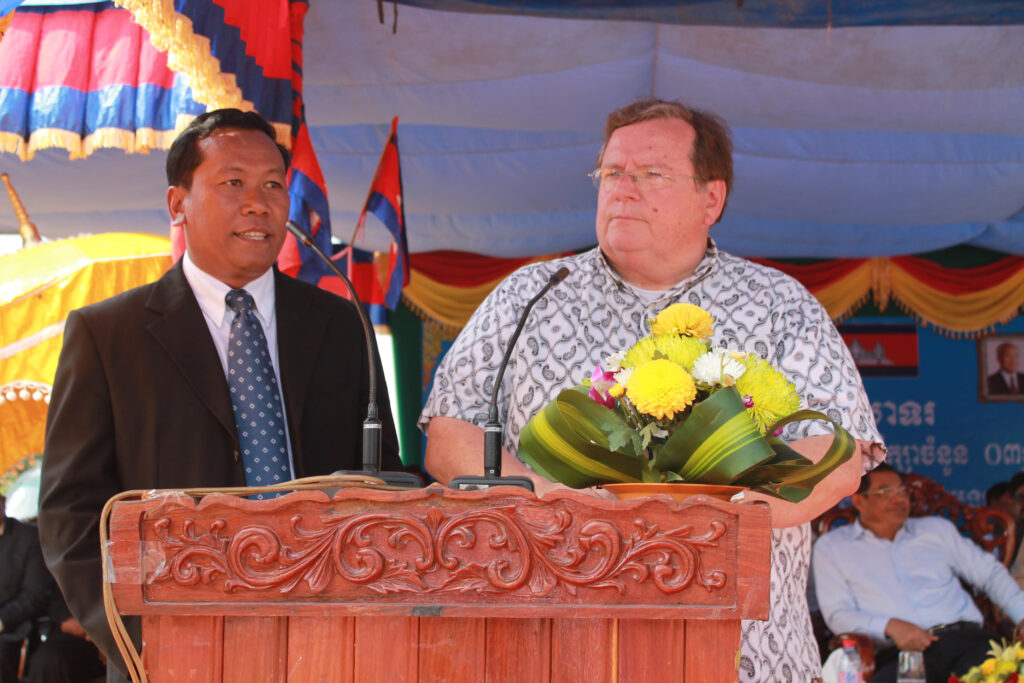

3. Watering in Resources
After the ceremony concluded, the Deputy PM, on behalf of the Cambodian government, invited SEAPC to expand its work beyond the cluster schools to the entire province: “We want you to replicate what you have done here across all nine districts of Banteay Meanchey.”
Mark’s first response was to point him back to Jesus:
“Let’s get this straight: we didn’t do anything! His resurrection power did. All we have done is bring different people together in strategic partnerships: Jesus, the government, and the economic and academic sectors. It’s not my money; I don’t have any! I’m not a rich philanthropist. You will have to tell Prime Minister Hun Sen that I didn’t do this; Jesus did.
If you give me Jesus, if you let me talk about Him, if you let us lead people in prayer to receive Him, and if you let us baptize those people and form groups that will work together with Jesus, I believe we can do what you are asking across the province. But I am under no illusion that without Jesus, I can’t do it. With Jesus, we can do it.”
Slightly hesitant, Mark’s new friend replied, “That’s not mine to give; only the Prime Minister has that authority — and don’t you realize that this is a Buddhist country, and that our religion is written into the constitution?” As a matter of fact, Mark did, “Yes, sir. I understand that… but Article 43 of your constitution also says that every Cambodian has the right to choose their own religion.” Mr Ke Kim Yan was shocked: “You know our constitution?”
“Sir, we would be fools to have this much money invested in your country if we didn’t know your constitution. We had to know how your government worked.” These words struck a chord: two days later, our new friend called the SEAPC team to let them know that he had spoken with PM Hun Sen, who had given the green light: “Fine. They can have Jesus.” And so it was that Banteay Meanchey Arise began.
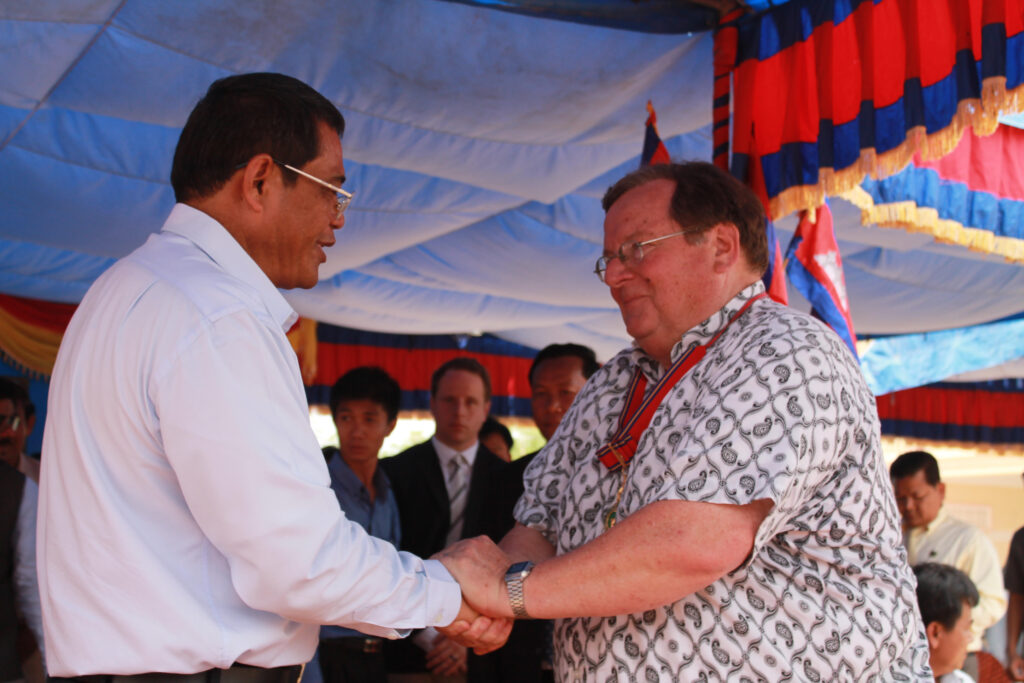
Winning Hearts, Changing Minds, Raising Up a Generation
Research kicked off for the province-wide project. The team visited each district superintendent and their school and department heads to ask questions about what they believed needed to change. At the time, there were no Cambodian products; Thailand dominated the agricultural market. Thai developers hired Cambodian sharecroppers to farm rice, tapioca, fish products, and chicken, and then exported these goods to Thailand for processing, so that they could be sold back to the Cambodian people as ‘Thai’ products. In every district, education leaders highlighted this issue.
This cross-border agricultural dynamic had other worrying consequences: students would complete 4th or 5th grade, and then disappear. SEAPC asked the parents, “Where are they?” And they would respond, “Thailand.” What were 12-year-olds doing in Thailand? If we wanted to see Cambodia live into the hope and vision Jesus was calling the nation to, we would need to bring that generation back home, so they could stay and build the country up. The superintendents agreed and invested significant sums into developing land for new high schools.
This was a great first step, but everyone involved knew that more was required: for the children to develop the pride and self-esteem necessary to become owners and developers — to think beyond systemic slavery — they would need Jesus to set them free. To help meet this need, SEAPC rolled out Every Home for Christ’s My Precious Book, a bilingual children’s bible, for use in every provincial school, at the greatest pain point: 4th grade. Through the book, many, many students received the Lord, and a significant proportion of 4th-grade teachers were born again too.
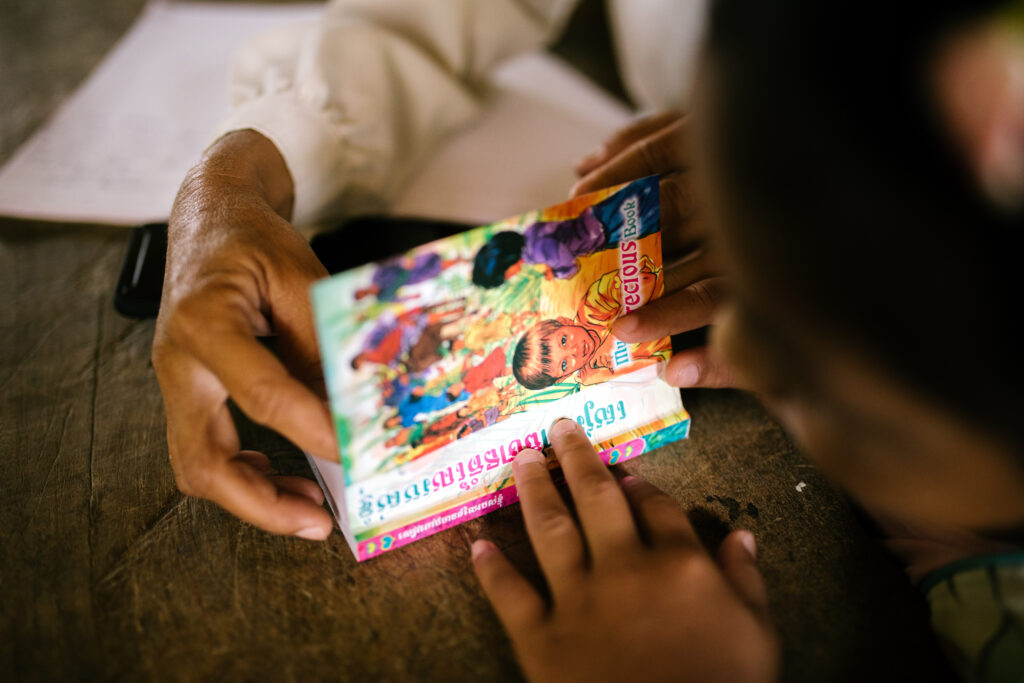
Discipling the Harvest
The My Precious Book rollout was enormously fruitful, and the local teachers did a great job taking care of their kids during school hours, but there remained a call to disciple these children beyond the confines of the classroom; we needed shepherds to care for the whole-life needs of these young people.
The SEAPC team closely examined the pastors in Banteay Meancheay province. We didn’t care who supported them, and we weren’t going to give them any money anyway; we just wanted to know who they were. We identified 250 Jesus-centered pastors through the Cambodian Pastor's Fellowship, and we told them we could give them access to discipling opportunities in the schools: “Here’s a lanyard with a picture and ID to show that you are working with SEAPC.” They jumped on the opportunity.
Setting the Foundation
There was still one unresolved question: what would happen to the students after they left high school? And what was to become of the existing adult population, for that matter? The superintendents and their team replied: let's build Cambodian Tech Centers for vocational training and job pathways. We told the superintendents, “If you provide the land, we will construct the buildings.”
There’s a huge issue in India where much of what is called ‘persecution’ against Christians is actually Hindu people taking back land that was purchased for pennies by foreign missions (as was standard practice at the time). We wanted to do things differently in Cambodia: although the school districts promised to reserve the land for the Tech Centers, they would still own the land itself.
We knew that if we wanted the Cambodian population to develop an ownership mindset — to move from agricultural subsistence to entrepreneurship — this was absolutely necessary; you have to start as you mean to go on. In the same way the gift of the Holy Spirit is a deposit for the promised restoration to come, the schools needed a tangible expression of their nation’s future hope.
To start, the government requested three subjects in particular: 1) water purification, 2) electrical wiring (as they were finally installing a local grid), and 3) small motor repair (as they had received a UN grant of roto-tillers that could replace water buffalo in their fields, but the local farmers hadn’t been taught how to maintain and repair them).
On the SEAPC end, we proposed a further four initial subjects: 1) English, 2) computer skills, 3) agricultural products for local market, and 4) online business. These seven subjects would provide a great foundation for all BC Arise would become (more on that in Part 2).
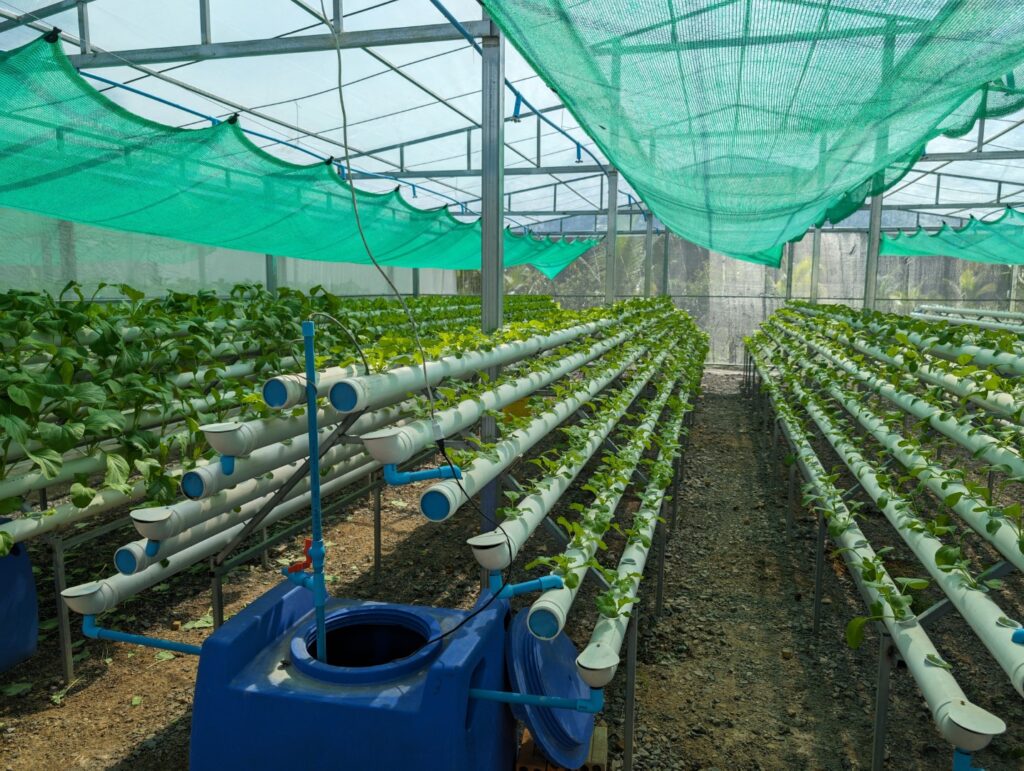
4. Harvesting in Multiplication
It’s a long story (which is why there is a Part 2), but since we started work on the Tech Centers, we have seen the harvest multiplied. The contractor who built the Centers came to Christ, and so have many members of his family. Vegetables have been produced and sold in the local Cambodian market through hydroponics. Skilled Cambodians on one of the school campuses have learned how to fashion high-end fishing flies, which have been exported to the US under the brand Geppert Brothers Fly Fishing. The Ministries of Education in both Thailand and Laos have asked for the Water Drop Project (teaching English through My Precious Book) be translated from Cambodian into their native languages, for use in their schools. In other words, a lot has changed since 1994.
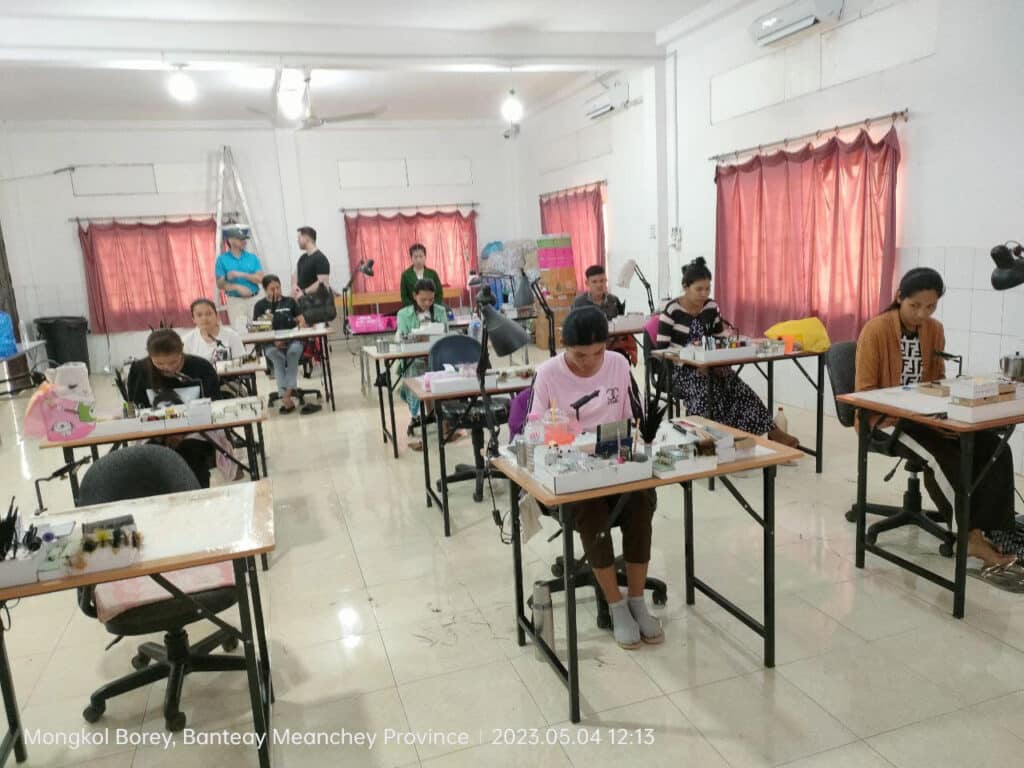
Beyond any external measures of the Lord’s success, we praise God for the people He has raised up, just like He said He would. We praise God for Veha, who was one of our 4th-graders at the original Rongko school — the same Veha who leads Cambodia Arise (the next stage of Banteay Meanchey Arise) — alongside a team full of people from his graduating class.
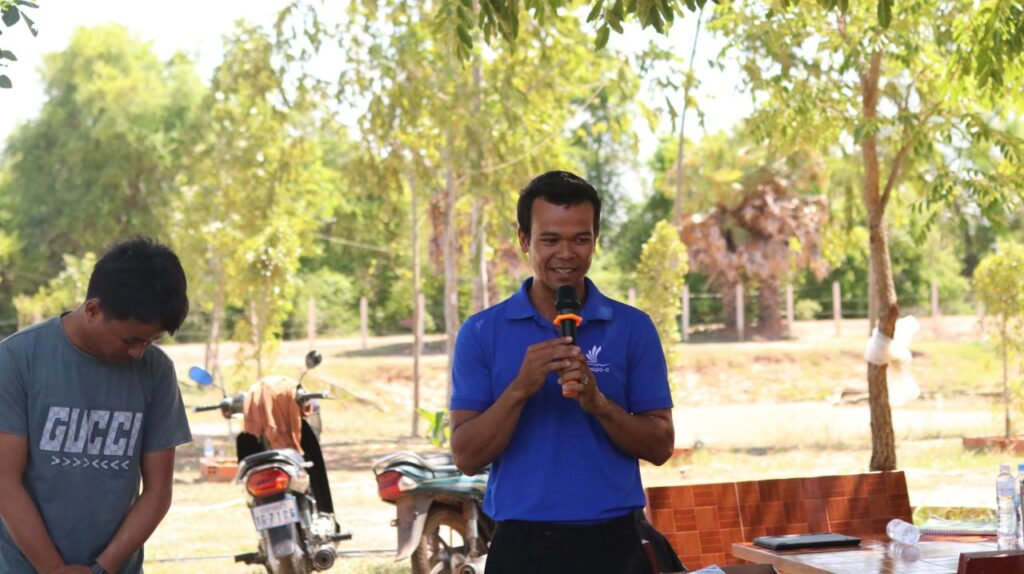
We praise God for other humble, powerful leaders like Oudom, who grew up in the Phnom Penh New Hope Children's Home, and who today oversees all of SEAPC Cambodia (our partner NGO in the country) as its Senior Project Coordinator.
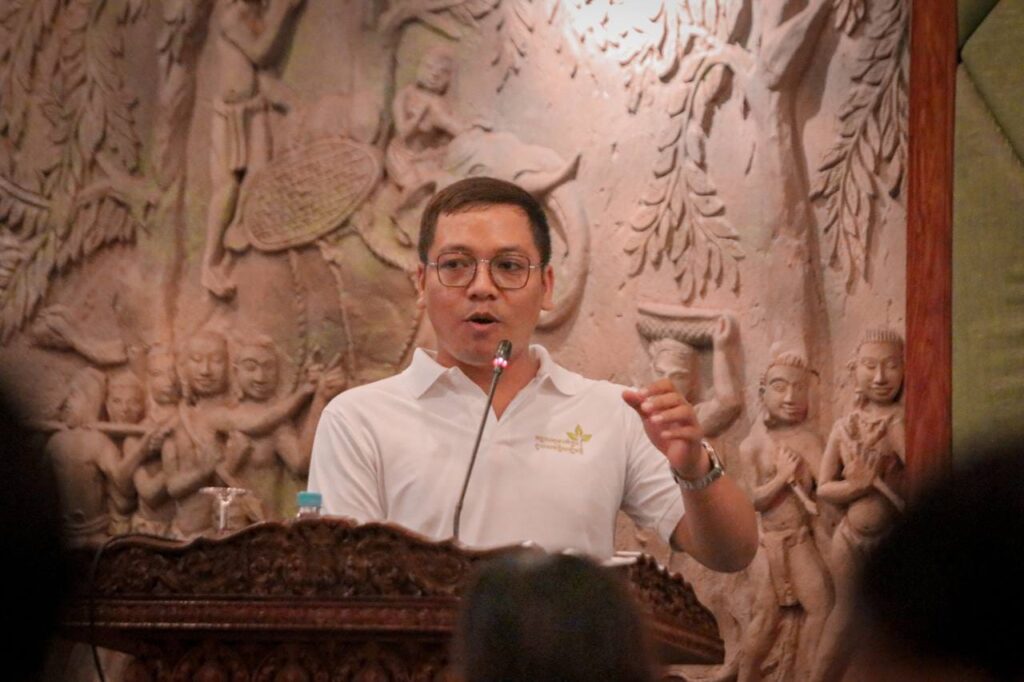
We praise God for the world-changing superintendents who have overseen these changes — who have paved the way for a different path for their students, with a different mindset and a new hope. Who have instilled a new ‘can-do’ mindset: “God wants us to prosper. We don’t want to be the lowest in ASEAN. We want to be the head, and not the tail.”
We praise God for Hou Bun Heng, who was the principal at Rongko when we started. Moments after Mark baptized him, he jumped out of the water and shouted, “Hallelujah!” In the first year of our partnership, he visited one of the Banteay Meanchey New Hope Children’s Homes and was miraculously healed from debilitating back pain after the kids prayed for him. He shared his testimony with everyone in that village, and now works in the Ministry of Education. In fact, he oversees the screening process for all foreign NGOs who want to work in Cambodia in any educational capacity.
We praise God for Pastor Sinai, who we began working with when he was a college student, and who is now the director of the Kim Lai Family’s funds; he is responsible for channeling their generational wealth into Christian education.
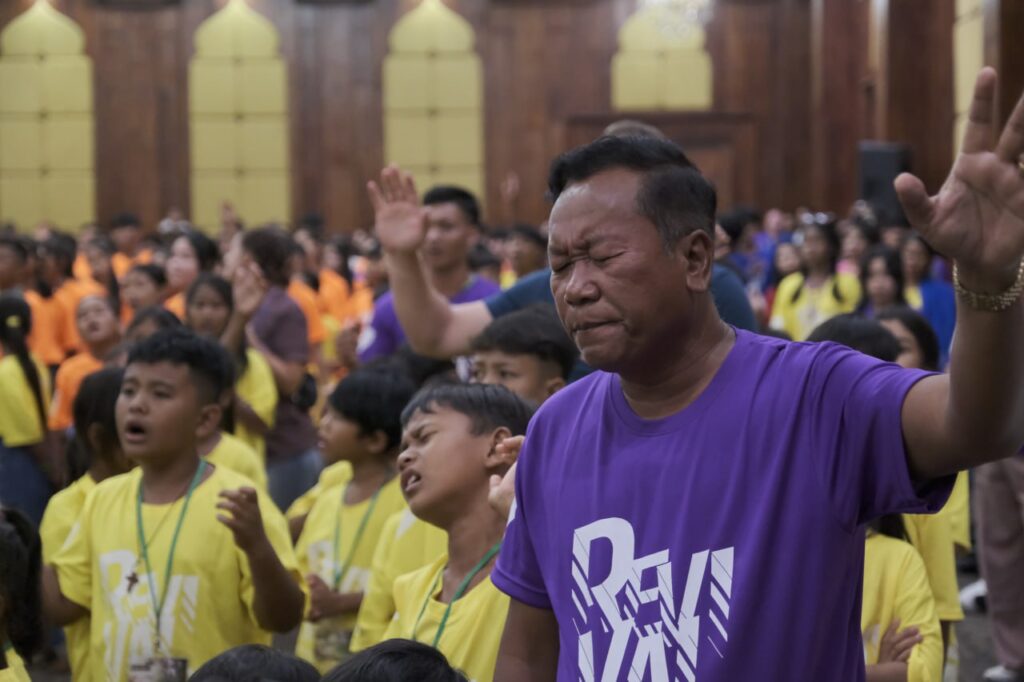
We praise God for Deputy PM Ke Kim Yan, for his continuing friendship, solidarity, and support. We praise God for Cambodia’s former PM, Hun Sen, who asked that My Precious Book and the Water Drop project be taught in all of Cambodia’s public schools.
We praise God for the way His resurrection power has raised up a generation of Cambodians who have led their country into its future over the last thirty years, we praise Him in advance for the next thirty, and we praise Him for all time. We praise God, full stop.
I pray that the eyes of your heart may be enlightened in order that you may know the hope to which he has called you, the riches of his glorious inheritance in his holy people, and his incomparably great power for us who believe. That power is the same as the mighty strength he exerted when he raised Christ from the dead and seated him at his right hand in the heavenly realms, far above all rule and authority, power and dominion, and every name that is invoked, not only in the present age but also in the one to come. Ephesians 1:18-21
(Click here for Part 2 of this decades-spanning story...)
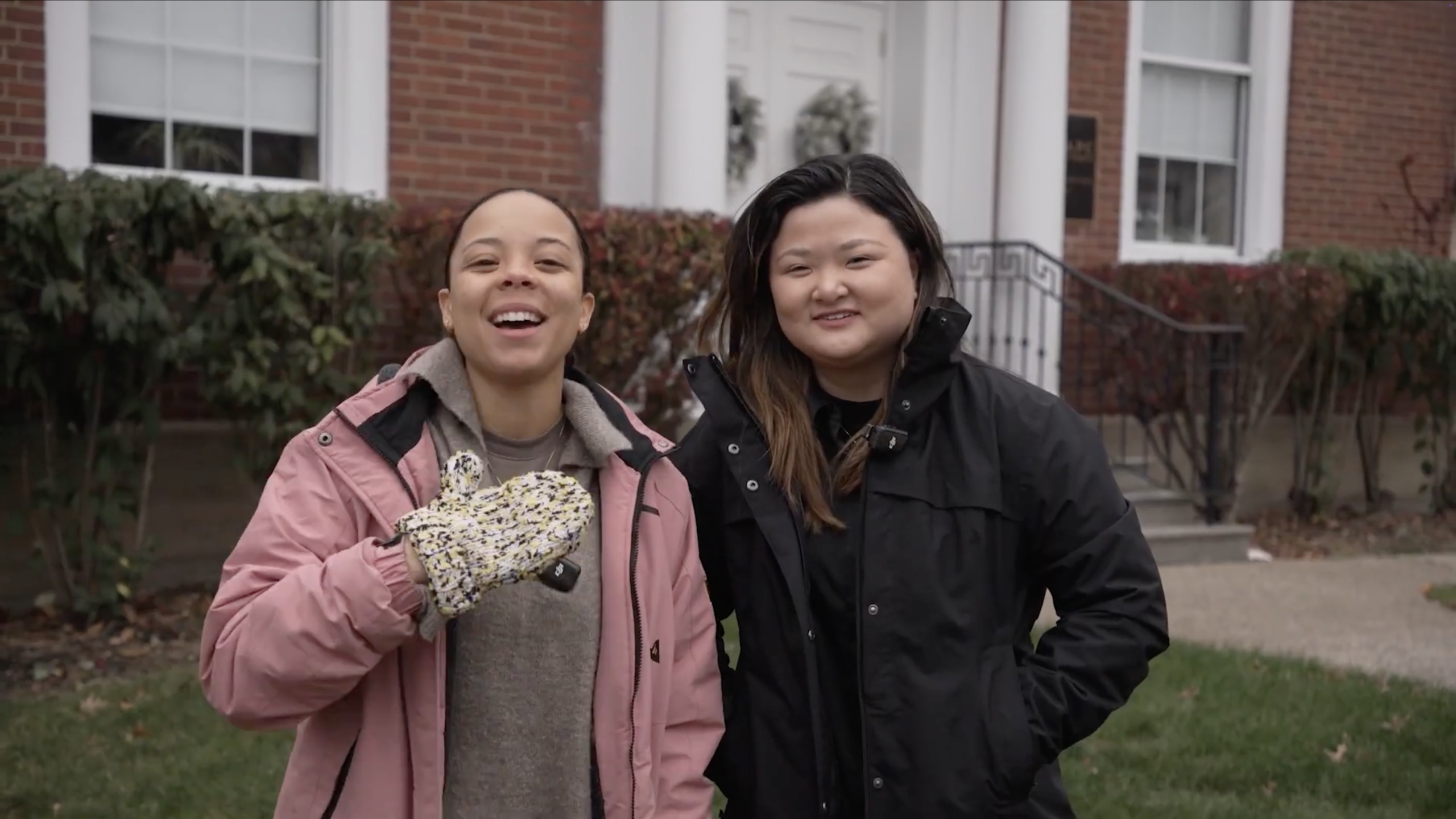
2025 Short Term Missions Trips with SEAPC
Have you been thinking and praying about ways to get involved with missions? SEAPC is offering several opportunities for short term trips in 2025.
2025 Short Term Missions Trips with SEAPC
Have you been thinking and praying about ways to get involved with missions? SEAPC is offering several opportunities for short term trips in 2025. Visit seapc.org and click Get Involved / Go to see the trips that are available. We'll be adding new trips in the near future, so follow along on our socials for more updates to come!
PARTNER TODAY

Part 3 - An SEAPC Podcast with Benjamin Chua and Jared Lenhart
In this third installment of an SEAPC podcast, Benjamin and Jared dig into Christian Unity -- how people can work together across denominational, political, and racial divides to build a Kingdom that is bigger than those things.
Part 3 - An SEAPC Podcast with Benjamin Chua and Jared Lenhart
In this third installment of an SEAPC podcast, Benjamin and Jared dig into Christian Unity -- how people can work together across denominational, political, and racial divides to build a Kingdom that is bigger than those things. Jared closed out the podcast with a prayer from the heart. Thank you again, Jared for visiting us and sharing your experiences!
PARTNER TODAY
No spam, notifications only about new, helpful content.
